Gustavus Adolphus College junior Marit Isaacson studied abroad SIT Tanzania: Climate Change & Sustainability, Mt. Kilimanjaro to Zanzibar. Next, she heads to Patagonia and Antarctica with SIT. Her story was featured on her college website. It is reprinted here with permission.
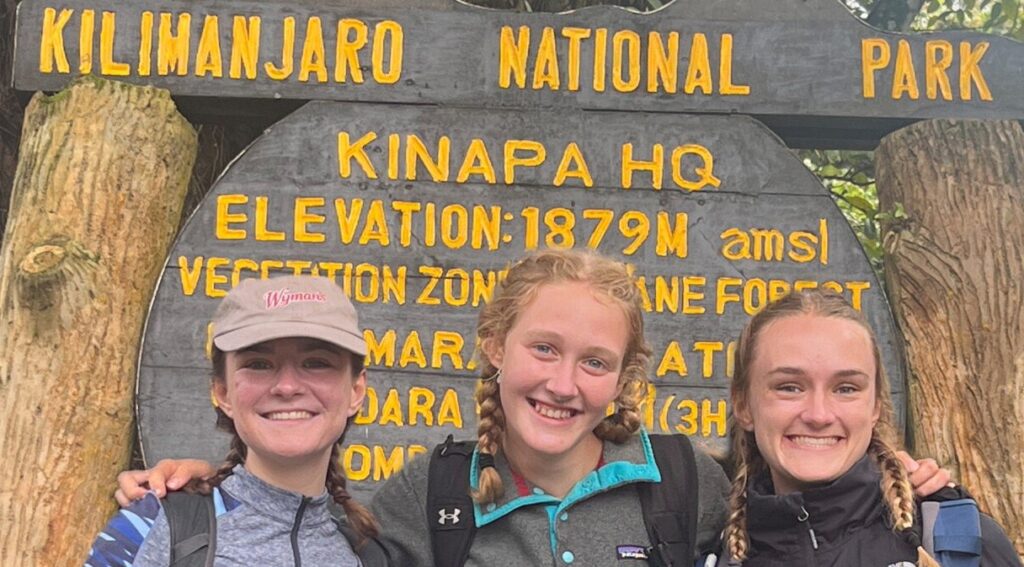
When Marit Isaacson was trying to decide how to get the most out of the summer between her sophomore and junior years, she leaned on some Gustavus student services for advice. The Geography and Spanish double-major is also a member of the women’s swim team, and she figured the timing was right to take a brief break from her sport and burnish her post-college credentials.
She started in the Career Center, looking into internship possibilities, and the advisers there also encouraged her to see what study-abroad opportunities she might have. After speaking with people in the Center for International and Cultural Education (CICE), Isaacson decided to venture to Tanzania and Zanzibar to study sustainability and climate change.
Isaacson had 14 classmates in her six-week program but was the only Gustie, which allowed her to make many new connections. “The program included a ton of cool things and places, and we were able to talk to all these local experts” about various environmental and cultural topics, Isaacson said. “I thought traveling like that on my own would have been a lot harder, and everything just lined up with my schedule.”
Just doing the first six-week program made me wish I could do this for longer, so that’s what I’m doing next.
Marit Isaacson
The program … featured classroom instruction and field-based seminars, and excursions to places including a seaweed farm and a marine area where students performed tasks such as measuring coral bleaching. “It was less of a traditional university, with all kinds of guest lecturers coming in to talk to us about their fields,” she said. “We spent time with local fishers and coral reef experts to talk about their livelihoods and working conditions. And we also got to do a lot of snorkeling, which was really cool.”
The students also spent two weeks in homestay visits, which exposed them to traditional Muslim cultural norms. “It was pretty different and very interesting to be immersed in that and see how the gender roles, especially, were very different than what we’re all used to in the United States,” Isaacson said.
… it all came back to how they didn’t have enough water, and how that was that affecting the health of the tribe, and their entire livelihoods, because they’re all either farmers or pastoralists who are affected by this lack of water.
Overall, the experience illuminated how people in other parts of the world have been affected by climate change, particularly as it pertains to how water supplies and usage have influenced the local lifestyles and forced them to keep adapting any number of practices. “In pretty much all cases, it all came back to how they didn’t have enough water, and how that was that affecting the health of the tribe, and their entire livelihoods, because they’re all either farmers or pastoralists who are affected by this lack of water,” Isaacson said. “It actually influences the gender roles, because women are the ones who are responsible for going to get the water, so they have to go farther and farther for it, which affects their ability to stay in school.”
Now that she’s concluded this summer adventure, Isaacson is jumping right into another one. This fall she’ll be in Patagonia in another SIT program that examines humans’ interactions with the environment. “I went into last summer trying to figure out whether I should do an internship or study abroad, and [my advisers] told me either would be beneficial,” she said. “Just doing the first six-week program made me wish I could do this for longer, so that’s what I’m doing next.”
Goal is to infuse African perspectives into U.S. classrooms
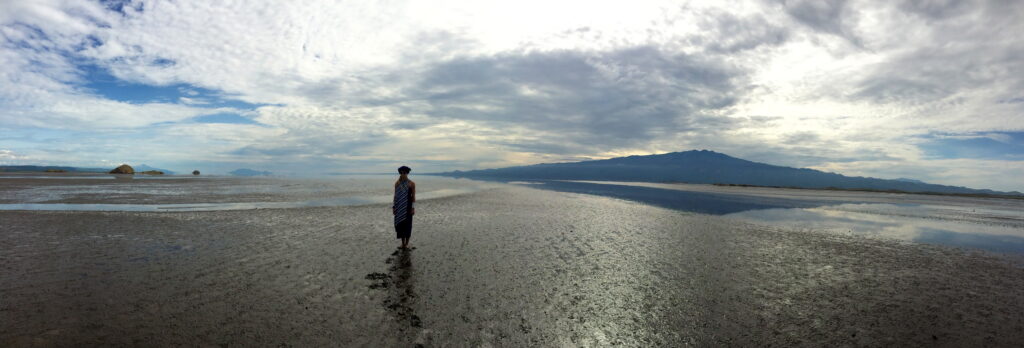
Twelve U.S. college and high school educators will have the opportunity to learn African perspectives and witness African responses to climate change next summer, thanks in part to a U.S. Department of Education Fulbright-Hays Group Projects Abroad Program grant to School for International Training (SIT).
On the program Tuko Pamoja: Tanzanian Creativity and Perspectives in an Era of Climate Change, SIT will welcome six college and six high school educators to Tanzania-Zanzibar for a five-week experiential seminar in June and July 2024. In coastal Zanzibar, urban Dar es Salaam and mountainous Arusha, the educators will meet with researchers, practitioners, and professionals, including smallholder farmers and members of the Maasai community, to discuss livelihoods, coastal environments, food production, the arts, and education. The program will focus on how Tanzanian communities draw on their knowledge to confront the impacts of climate change.
“SIT’s main goal is to infuse African perspectives into U.S. classrooms and curricula when discussing climate change,” said Project Director Dr. Jonathan Walz. “Whether our participants are educators in humanities, social studies, languages or area studies, each will be able to reflect on the practices and social and environmental histories encountered in Tanzania as examples of African communities’ creative adaptions to the impacts of climate change.”
Educators will be able to bring these new and diverse perspectives back to their U.S. classrooms and students, integrate new material into their teaching, and help their U.S. students gain an international outlook and new approaches to problem solving of this critical global issue.
Dr. Said Graiouid, SIT Provost and Dean of Faculty
SIT Provost and Dean of Faculty Dr. Said Graiouid said, “Educators will be able to bring these new and diverse perspectives back to their U.S. classrooms and students, integrate new material into their teaching, and help their U.S. students gain an international outlook and new approaches to problem solving of this critical global issue.”
Noting that SIT has the largest portfolio of programs on the African continent of any U.S. study abroad provider, Graiouid said the organization has redoubled efforts to generate more interest in the continent at a time when many U.S. students are opting to study in countries that feel more familiar to them, such as Europe and Australia.
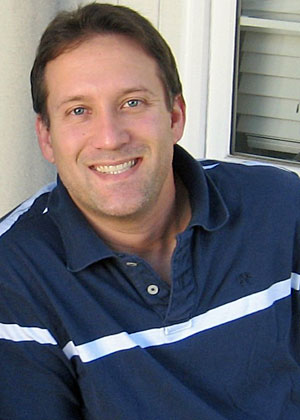
Tanzania can be seen as a microcosm of the African continent, Walz said, a place where diverse people are responding in creative and innovative ways to environmental changes.
“Coastal and island environments such as Zanzibar bear the brunt of sea level change and the increased frequency of severe climate events, including mega-cyclones, typhoons, flooding, and coral bleaching. In such ecosystems, human communities face threats to water, food, and energy sources,” he noted.
Walz is associate professor and chair of SIT’s graduate MA in Climate Change and Global Sustainability. He is also academic director of an undergraduate program based in Stone Town, Zanzibar, focused on coastal ecology and natural resource management. SIT also has an undergraduate program based in Arusha on wildlife conservation and political ecology, which is run by Dr. Oliver Nyakunga. Since 1990, more than 2,000 students have participated in SIT’s undergraduate programs in the country.
The full range of climate impacts and human creativity to understand and address these impacts can be observed in the country and by the responses of its communities, institutions, and organizations.
Dr. Jonathan Walz, SIT academic director and program chair, Zanzibar
Culturally and linguistically diverse, Tanzania’s communities have histories, perspectives, strategies, and expressions that capture and address contemporary climate and environmental changes in the 21st century. Tanzania is one of a very few countries in the world and only one of two countries in sub-Saharan Africa to have both glaciers and coral reefs within its territory, alongside an array of other types of environments.
“In an era of climate change, the full range of climate impacts and human creativity to understand and address these impacts can be observed in the country and by the responses of its communities, institutions, and organizations,” Walz said.
According to the United Nations, Tanzania is one of the 10 fastest growing countries in the world in terms of its human population. With some 40 percent of territory designated as national parks or highly protected areas, the country faces increased pressures on land, water, food, and energy resources.
Participants in the five-week seminar can expect to gain practical and conceptual tools and develop creative artifacts that can support them in infusing African perspectives and creative responses to climate change into their curricula and pedagogies back home. They may also develop partnerships and connections that extend beyond the length of the seminar.
“A U.S. high school educator might also connect with a Tanzanian high school educator who would like to establish a virtual student exchange or a collaborative cross-country project,” said Walz. “The possibilities are myriad, as our program is designed with an intentional eye toward relationship building.”
The application period for Tuko Pamoja: Tanzanian Creativity and Perspectives in an Era of Climate Change is expected to open this fall through the SIT websites.
* * * * * * * * *
Tuko Pamoja: Tanzanian Creativity and Perspectives in an Era of Climate Change was developed with a grant of $142,442 from the Fulbright-Hays Group Projects Abroad (GPA), U.S. Department of Education. That funding is 60 percent of the total cost of the project, with the remaining 40 percent funded by nongovernmental sources. The content of the program does not necessarily represent the policy of the Department of Education and should not be seen as an endorsement by the U.S. government.
Study examines human health-environment link
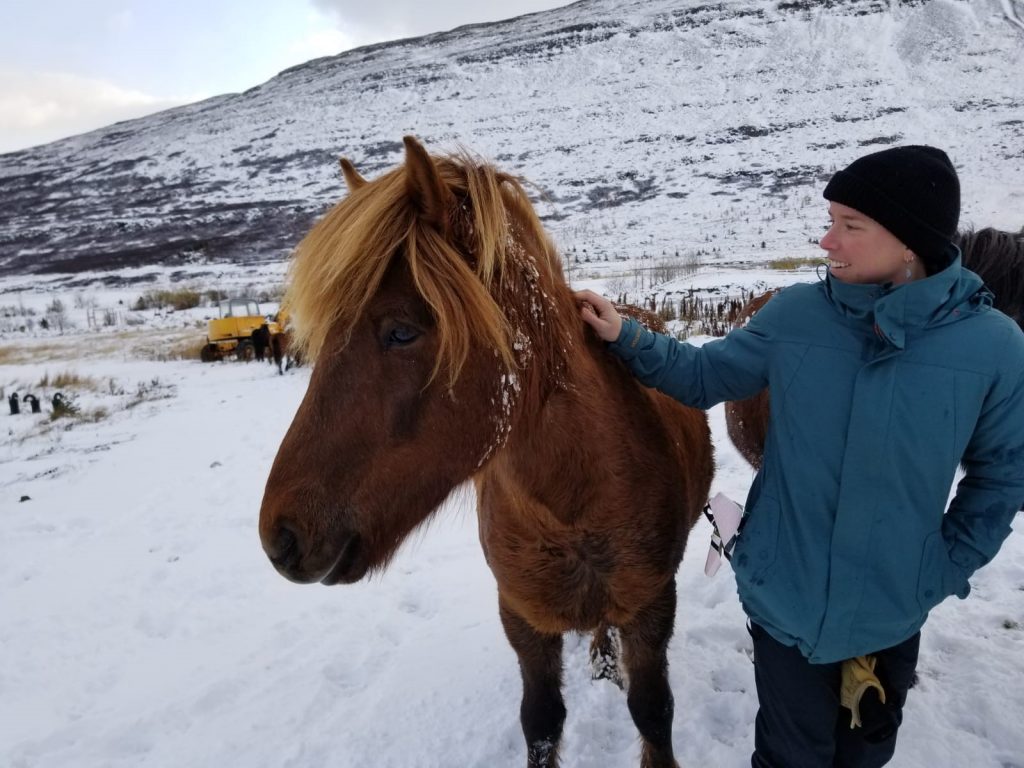
The Human Health chapter of the Vermont Climate Assessment is not light reading. From household mold to tick-borne diseases to the effects of extreme weather on mental health, the chapter spells out in frank and uncluttered terms what Vermonters can expect from a warming climate.
“The myriad effects of climate change impact every part of the human body in one way or another, and climate change effects also disrupt health systems, supply chains, and health infrastructure,” the introduction declares. The Human Health chapter is part of a 500-page assessment, published in November, detailing the myriad ways climate change will impact Vermont.
While the unvarnished information is not comforting, that’s part of its power. Addressing health and nine other subjects in separate chapters, the assessment is an urgent call to action to address climate change, and an invaluable tool for policymakers.
The idea of the overlap between climate and human health lodged in my brain.
That’s one reason why SIT Climate Change & Global Sustainability alumna Stephanie Clement decided to spend a year and a half volunteering to be the primary writer of the health chapter. “The assessment is there to inform policy making. The folks who are creating policy for Vermont’s Climate Action Plan are referencing our chapters. So, it is a critical tool for policy assessment,” says Clement.
The assessment got a lot of attention when it was released in November. “The feedback has been amazing,” Clement says. “It’s empowering to be referenced and questioned, and to engage in intellectual conversations about real-life issues. This is tangible and real – those are the things I joined SIT for.”
Just a little more than two years ago, Clement was hiking across glaciers in Iceland and studying coral reefs in Zanzibar as part of the small second cohort of SIT’s Climate Change and Global Sustainability MA program.

One of the great things about travel—something SIT knows very well—is that it completely upends your comfort and known existence in the world.
The daughter of an international development worker and an SIT TESOL alumna, Clement was familiar with SIT’s approach to education. She grew up in Africa and the Middle East, studied international development as an undergrad at McGill University, and served with the Peace Corps in Zambia, where she began to pay closer attention to the intersection of health and the environment.
“The idea of the overlap between climate and human health lodged in my brain. People are so dependent on land and environment; it’s hard to separate human well-being and health and environment and health,” she says.
With its trans-continental focus on the intersection of natural and social sciences, SIT’s program seemed like a logical fit for Clement. The SIT program features a small cohort and direct access to the program chair, Dr. Jonathan Walz, and other professors.
“One of the great things about travel—something SIT knows very well—is that it completely upends your comfort and known existence in the world, what you know and rely upon. You have to readjust and learn. Iceland was so foreign to me. I had never been to a northern country like that. It kept me on my toes. That contrasted so strongly with Zanzibar, tropical, south of the equator, with heat, humidity, and so many people. That juxtaposition keeps you constantly alert and aware and learning about your environment.”
The third semester of the Climate Change program is a practicum designed to be carried out anywhere in the world. Clement originally had intended to do hers in an agro-forestry program in Senegal, but COVID-19 disrupted that plan. Instead, she ended up back home working with the nonprofit Vermont Climate and Health Alliance (VTCHA), researching and writing about connections between community, climate, and the COVID-19 response.
Her VTCHA contacts eventually recommended Clement as a lead writer for the health chapter of the Vermont Climate Assessment. On top of her full-time job with the U.S.-Canada nonprofit One Tree Planted, she took on the Herculean task of learning more about the impacts of climate change on human health in Vermont.
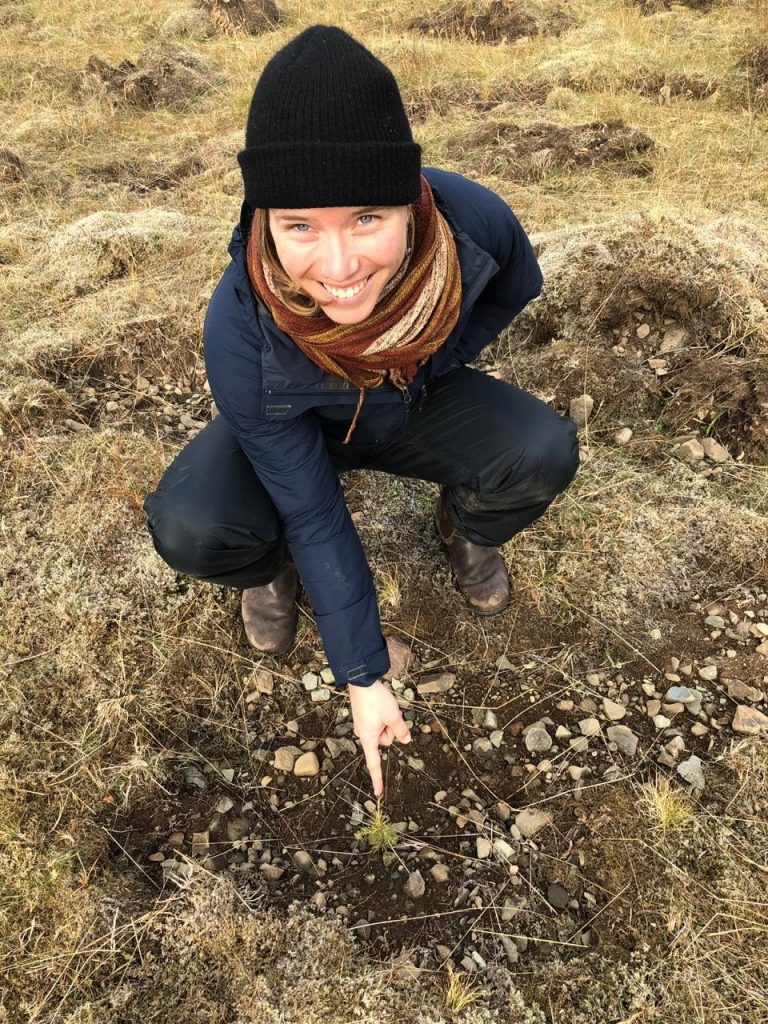
That meant collecting and writing about myriad aspects of human health related to climate change. “What happens to Vermonters who are used to a colder climate. How a changing climate will affect vulnerable populations. What happens with air quality and more pollen. The impacts of climate on mental health. So many of these things are being underreported and under-represented,” Clement says.
With that information now available publicly, Clement hopes it will catalyze a statewide plan of action.
“In Vermont we have been ahead of the curve in so many areas on a small, localized scale. In 2016, for example, Burlington was the first city in country to run completely on renewable energy,” But that local action hasn’t grown into state or regional policy, she notes.
“We have to fix our electric grid, get electric vehicles on the road, get homes weatherized, fix our infrastructure. It’s much larger than local actions.”
Still, Clement has faith in Vermonters. “If Vermont stays true to its values, there will be a lot of community conversations about what needs to be done. I have a lot of hope and positivity about how Vermont will engage. We are community action-oriented people.
“I really hope there are tangible results that come out of this. It would feel like the effort we put in was for something good.”
Although SIT program delivery was modified in 2021, SIT Study Abroad and SIT Graduate Institute continued to provide life-changing international experiences for graduate and undergraduate students throughout the year.
Not surprisingly, the challenges brought about by COVID-19 meant that many of the most popular programs in each division were either hybrid or virtual. Nevertheless, students like Tiffany Padilla, who studied Tibetan online, found “immense value in experiencing a study abroad of any kind.”
Read “Insights from a virtual study abroad”
Top 5 SIT Graduate programs in 2021
Based on enrollment, the most popular SIT Graduate Institute programs in 2021 were:
1. Part-time hybrid MA in Sustainable Development
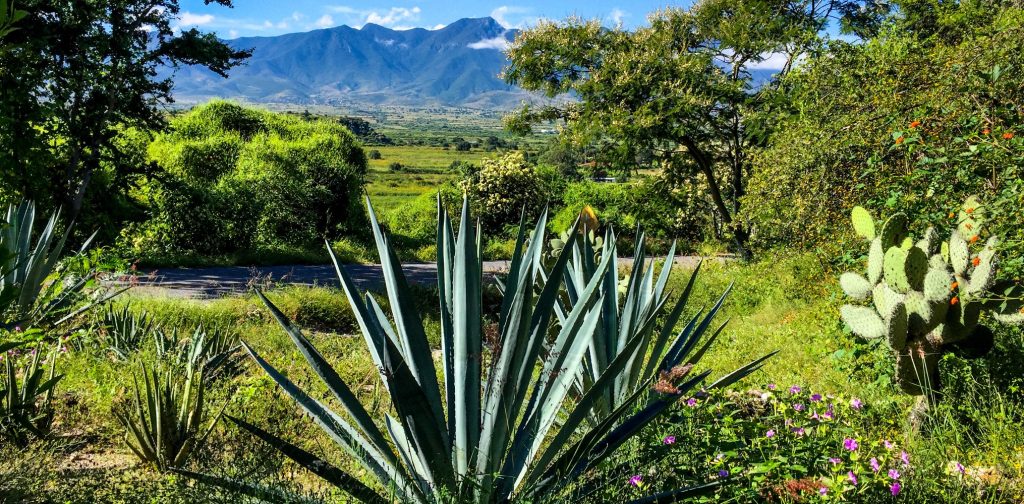
In this two-year program, students learn to support thriving communities and build skills in community development and social change. They work with their professors and cohort online, with brief residencies in Vermont and field courses in Nepal and Mexico.
Read Randal McCoy’s capstone paper, “Black Lives Matter”
2. Part-time hybrid MA in TESOL (Teaching English to Speakers of Other Languages)
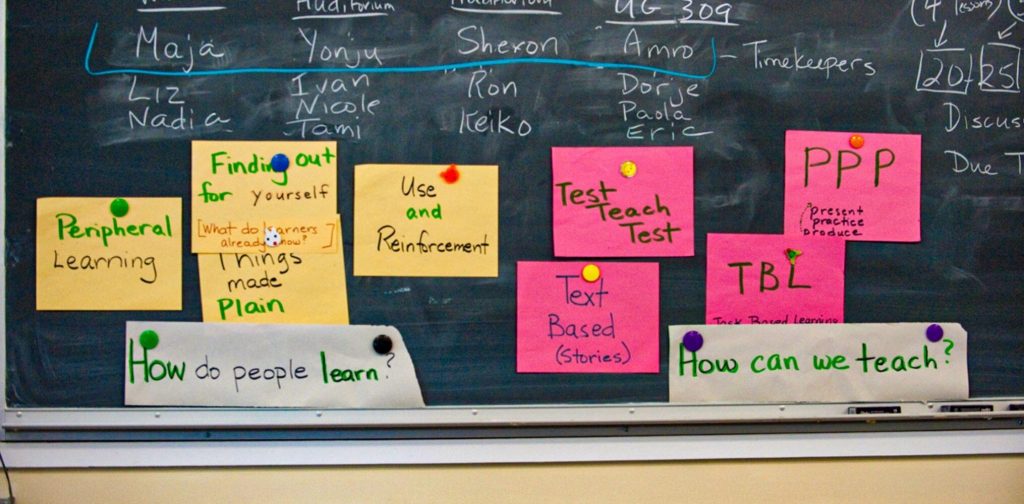
SIT is a national leader in TESOL training so it’s no surprise that this two-year program continues to rank among SIT’s most popular. Grounded in plurilingual pedagogy and led by experts in the field, the program provides students the opportunity to specialize in one of four subject areas: teacher training, plurilingual pedagogy, teaching refugees and displaced persons, or teaching young learners.
Find out more about plurilingual pedagogy
3. Part-time hybrid MA in International Education

In this two-year hybrid MA, students learn to lead education programs in communities around the world. The program features brief summer residencies on SIT’s scenic Vermont campus and includes electives focused on leadership, peacebuilding, language education, international development, and intercultural service.
Program chair Dr. Sora Friedman talks about her new book
4. Global MA in Climate Change & Global Sustainability
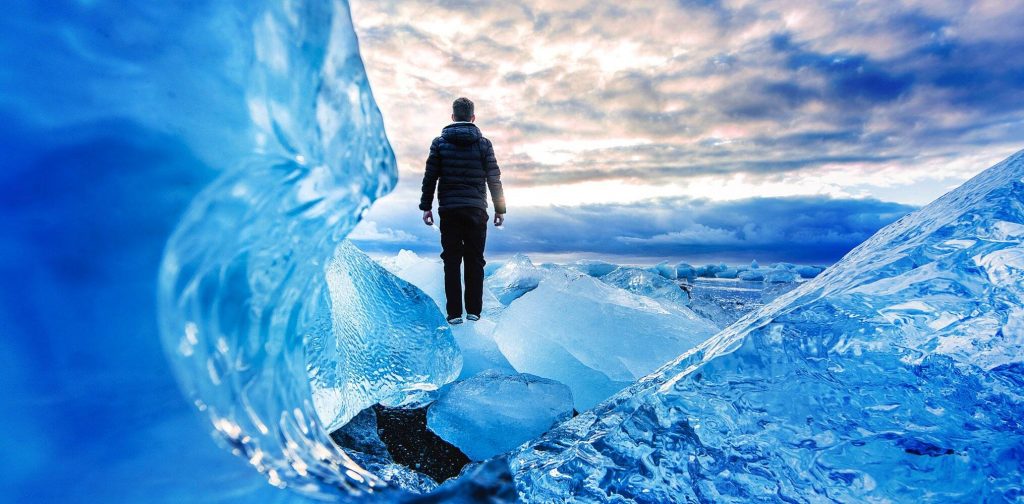
In SIT’s one-year Global Master’s programs, students study in a different country each semester and in most cases complete their final capstone anywhere in the world. Among our first and most popular of these global formats is Climate Change & Global Sustainability. With one semester each in Iceland and Tanzania, students gain the knowledge, skills, and global experience to address climate change and enhance the sustainability of environments and responsible human livelihoods. Alumni from this program have gone on to careers in public policy and NGO fields.
Climate Change alumna Danielle Purvis: ‘The ways of the world must change’
5. Global MA in Diplomacy and International Relations
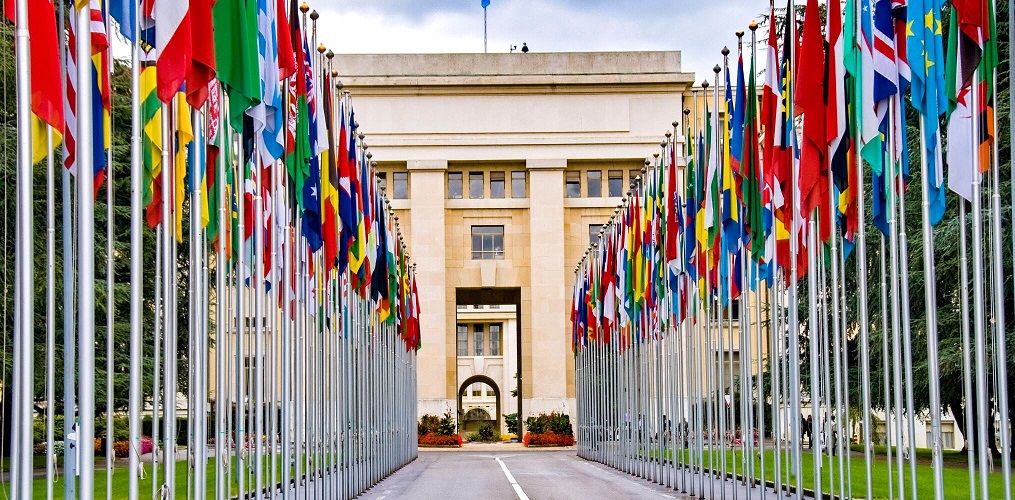
Students prepare for careers in international, regional, and global affairs or diplomacy to address some of the most critical issues facing the planet. This one-year program takes place in South Africa, Switzerland, and the United States for key points of comparison among U.S., European, and African perspectives as students learn how to function with the global political system.
Program chair Dr. Bruce Dayton: ‘We’re at a tipping point’
Top 5 SIT Study Abroad programs for 2021
Based on enrollment, the most popular SIT Study Abroad programs and countries in 2021 were:
1 & 2. Iceland
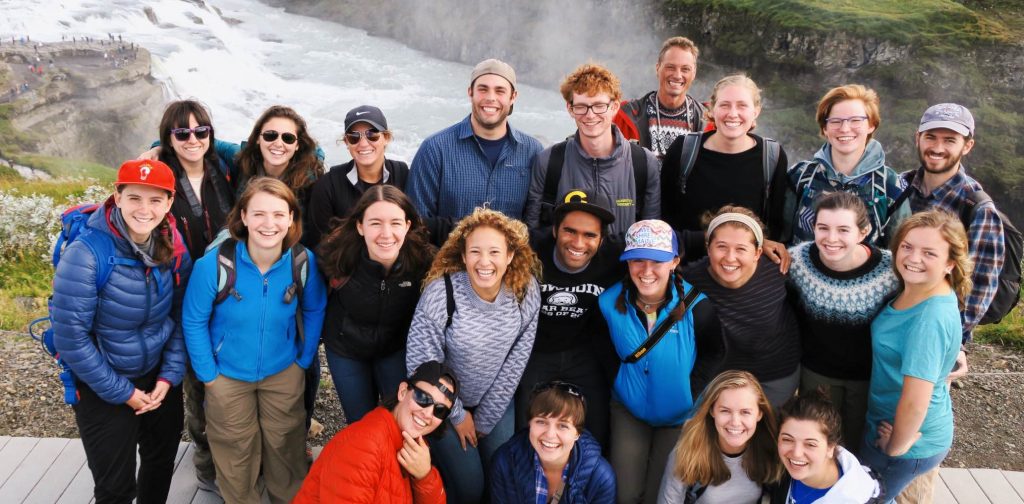
SIT Study Abroad’s two most popular programs in 2021 were both immersive experiences in Iceland. Students on our semester program, Climate Change and the Arctic, were drawn to the beauty of Iceland’s glaciers, volcanoes, coastlines and waterfalls. In that dramatic setting, they study climate models and carbon management with experts on the front lines of the fight against climate change.
SIT’s summer program in Iceland, Renewable Energy, Technology & Resource Economics, is similarly focused on climate and environment, attracting students interested in energy policy and renewable energy technologies.
3 & 5. South Africa
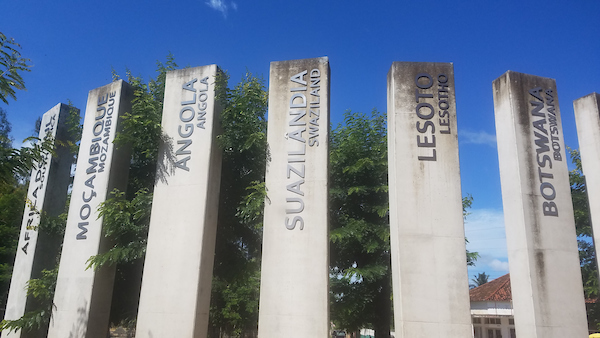
Summer and semester Virtual Internships in Diplomacy, Conflict Resolution, and International Relations ranked third and fifth respectively in 2021, preparing students for careers in human rights or global affairs. Both programs explore non-western perspectives on conflict resolution, human rights, international relations, and south-south diplomacy in cooperation with partners like the Africa Centre for the Constructive Resolution of Disputes (ACCORD), Africa’s largest conflict resolution NGO.
4. Kenya
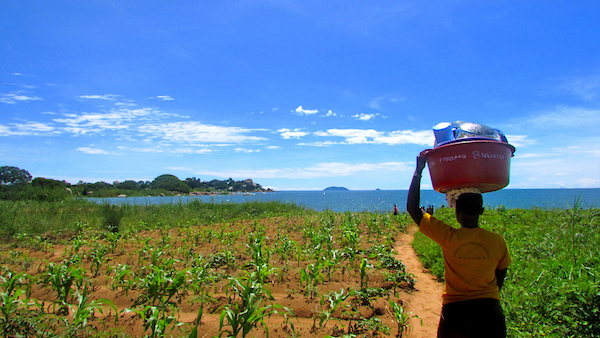
Another virtual internship in Africa ranked among our top 5. On our summer program Kenya: Virtual Internship in Public Health in the Tropics students have the opportunity to intern with a community or research organization, business, government agency, or NGO. This program is carried out in partnership with the Kenya Medical Research Institute, the Centers for Disease Control, and other organizations working on public health issues in Kisumu. (The semester version of this program was also popular, coming in sixth in our 2021 ranking.)
#1 Muse: Ecuador
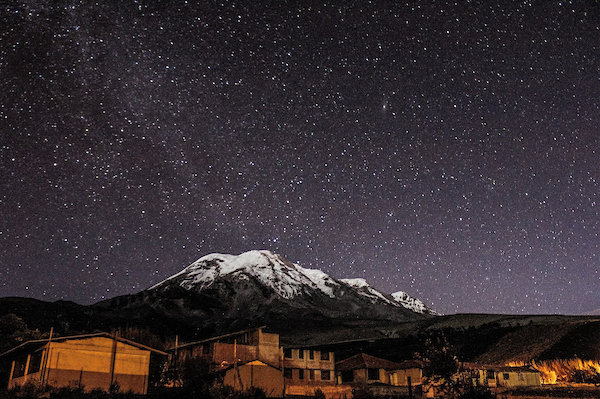
Last but not least, we would be remiss if we failed to include Ecuador in this list as the country that inspires some of the most prolific writing among our students and alumni.
I was captivated by the Ecuador’s immense, thriving biodiversity.
Zane Libke
This program has caused me to reflect a lot on what exactly the goal of ‘development’ is, on what changes I actually want to make in the world, and how one should go about making change.
Meg Edwards
Exploring the cloud forest for five days and our trip to the Amazon was like, ‘Someone pinch me, I think I’m dreaming’.
Halle Catalina Brown
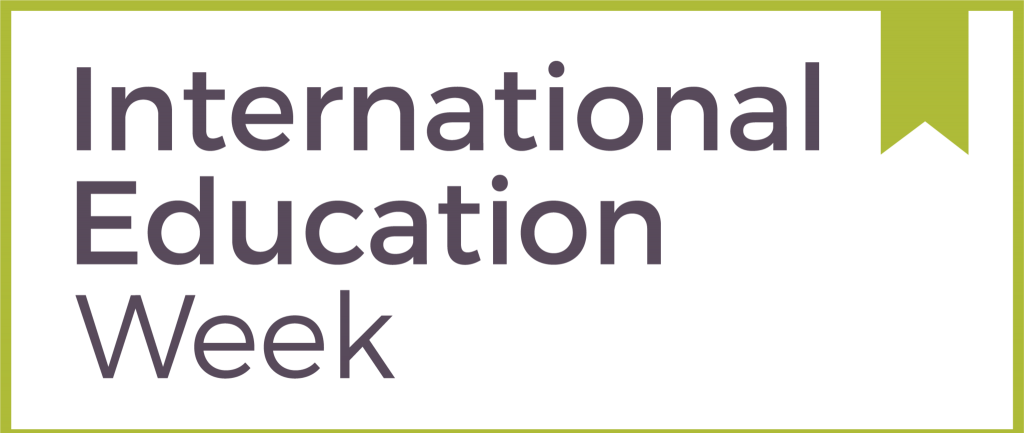
Each year, the U.S. Departments of Education and State designate a week to spotlight the importance of international education. “International education enhances cultural and linguistic diversity and helps to develop cross-cultural communication skills, foreign language competencies, and enhanced self-awareness and understanding of diverse perspectives,” this year’s statement reads.
At SIT, we welcome this opportunity to focus on the importance of the work we do year-round. And there is no better way to highlight this work than through the voices of our students and alumni.
Halle Catalina Brown studied abroad on SIT Ecuador: Comparative Ecology and Conservation in 2019. That experience was so foundational that she continues to blog about it and the Ecuador connections she made during her time there.
Ecuador study abroad excursion feels like an ‘unimaginable, wild dream’
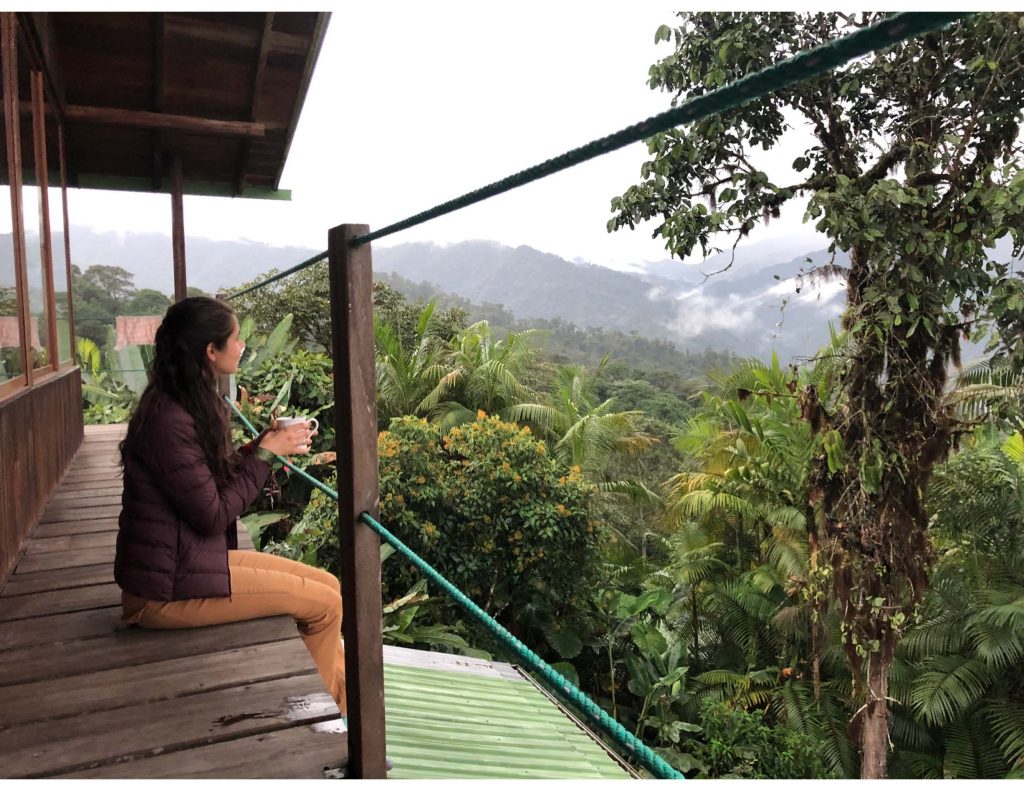
My heart sank as I observed the destruction of some of the most wild and beautiful nature I’ve ever seen and the deep suffering of the people.
“I fell in love with the Amazon,” Halle writes in this blog post. “… Oftentimes, I would remind myself that the nature I was exploring has only been seen by a countable quantity of eyes. Possibly countable only on my fingers and toes. Which is the reason I find it so important to also provide education on the ways we are destroying this wildness.”
She goes on to describe in detail the shocking corporate and government practices that are destroying natural resources and local communities. “My heart sank as I observed the destruction of some of the most wild and beautiful nature I’ve ever seen and the deep suffering of the people. And we are all to blame.”
It’s no doubt that the pandemic has challenged our students’ ability to physically cross borders and experience other cultures in person, but that hasn’t deterred many students who are intent on enhancing their international education and expanding their world view.
Chile virtual internship offers new ‘vantage point’ on social change
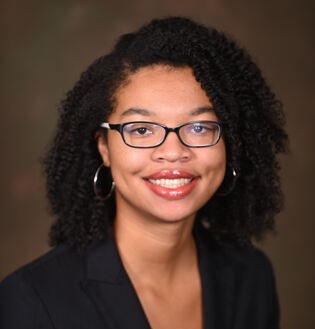
I learned a lot about Chilean culture and was able to experience it from a close perspective …
In fall 2020, Spelman College international studies major Alix Swann joined SIT for Chile: Virtual Internship in Education & Social Change Organizations. “At first, I was apprehensive about the online experience, but it ended up being incredibly impactful,” Alix told us. “I learned a lot about Chilean culture and was able to experience it from a close perspective, as well as work with an organization who does a lot of work for women’s rights on the ground.”
University of Arkansas Honors College Fellow Meghana Chithirala, a pre-med junior, had planned to spend the summer polishing her language skills in France. When the pandemic interrupted those plans, Meghana joined SIT Kenya: Virtual Internship in Public Health in the Tropics.
SIT virtual internship with Kenyan hospital offers insights on public health
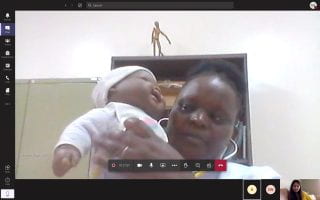
This internship was honestly one of the greatest opportunities I had been given.
Meghana’s rotations—in an HIV clinic and pediatrics, critical care, and neonatal units at Jaramogi Oginga Odinga Teaching and Referral Hospital in Kisumu—were an eye-opening introduction to public health, as well as the benefits of online internships. “I was exposed to a multitude of issues in the Kenyan health care system and how third-world countries are trying to utilize their limited resources,” Meghana wrote.
“This internship was honestly one of the greatest opportunities I had been given,” she concluded.
Gretta Marston-Lari was born in Peru and came to the United States with her parents as a young teen. A Latin American studies and theater major at Macalester College, Gretta returned to Peru with SIT on a program focused on indigenous communities and globalization.
Semester in Peru inspires musical
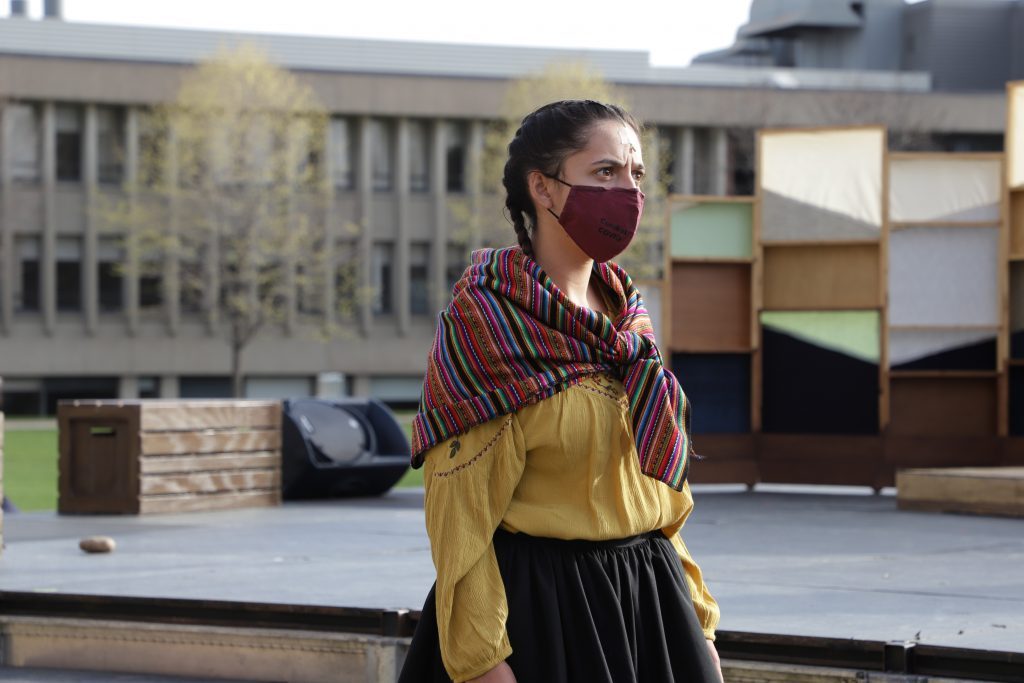
I felt that I was finally learning what I had been longing to learn in all of my college courses.
“I felt that I was finally learning what I had been longing to learn in all of my college courses. … The study abroad experience fed my soul in a way that was really needed and that I had been waiting for since I left Peru at age 14.”
As her final project, Gretta wrote a musical, Como la Tierra (“Like the Earth”) that tells the story of an indigenous community’s struggle to block a copper mine. “We had been learning a lot about how indigenous bodies of knowledge exist in an oral tradition. To me, theater in a large way is an exchange of knowledge, and it’s oral. I thought this was the best way I could connect to what was happening and to contribute to further their struggle,” she told us.
During an exceptionally challenging year, Danielle Purvis earned her MA from SIT in Climate Change & Global Sustainability, a one-year global program that includes a semester each in Iceland and Zanzibar.
‘The ways of this world must change‘
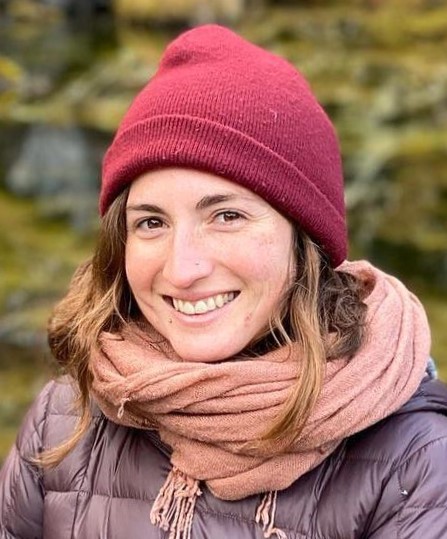
… we get to be on the front lines of building new bridges and creating a new way of life.
“On top of the typical challenges of a graduate degree, the Class of 2021 completed their degrees entirely or almost entirely during a global pandemic. My cohort, for instance, experienced a lock down, then an evacuation, and then a lock down and an evacuation,” Danielle told her graduating class during a moving speech at her commencement in August.
“I am completing this experience with a blend of gratitude for the resources available to me and a commitment to see these bountiful resources distributed as equitably as possible. I am completing this experience with a global lens of how we are inextricably connected to each other and to our natural environment. And I know, more than ever before, that the ways of this world are unsustainable and must change, and that we get to be on the front lines of building new bridges and creating a new way of life,” she said.
Registration now open for nearly 40 SIT summer programs
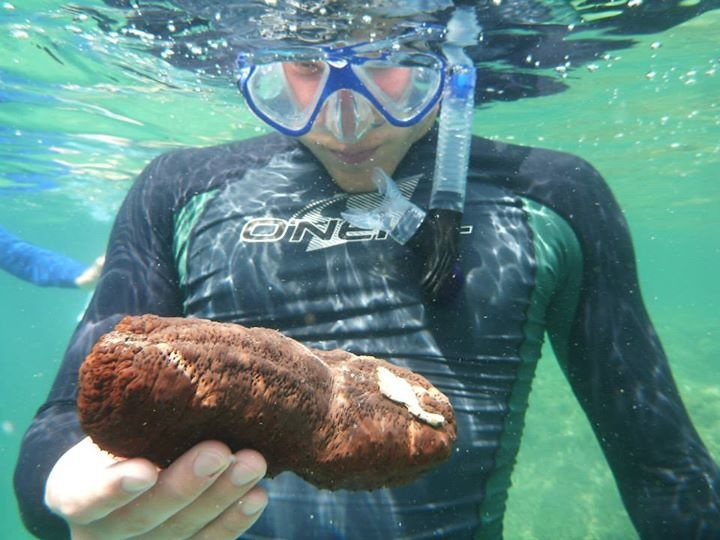
If you haven’t yet begun planning for next summer, this is a great time to start.
Registration opens Wednesday, Sept. 15, for 38 SIT summer 2022 study abroad opportunities. Included are new programs that encompass art and social change in Eastern Europe; hip-hop music and decoloniality in Senegal; climate change in Jordan; peace-building and human rights in the Balkans; human trafficking in the Netherlands; food security in Italy; epidemiology in Argentina; and urban design and social justice in Spain.
“SIT has historically expanded the frontiers of international education, creating global opportunities of learning and cultural immersion for thousands of students a year across all continents,” notes SIT Dean of Faculty Dr. Said Graiouid. “The summer 2022 portfolio maintains that tradition with programs that focus on social, political, economic and scientific arenas and in diverse historical periods and geographical settings.”
Students are challenged to embrace a human-centered, comparative approach …”
SIT’s immersive programs next summer will take place in sub-Saharan Africa, the Asia Pacific region, Europe, and the Middle East/North Africa.
SIT will also once again offer virtual internships that allow undergraduates to build invaluable professional and academic experience on a range of subjects. These include two Jordan internships, in counseling and humanitarian action, and in community empowerment and climate change; women’s rights in Cameroon; education and social change in Chile; sustainability in India; public health in Kenya; human rights in Serbia; diplomacy and international relations in South Africa; and development and gender in Vietnam.
Regardless of which program they choose, says Graiouid, “students are challenged to embrace a human-centered, comparative approach in which they engage with resources and the competencies needed for the development of the skills of critical literacy, intercultural communication, and intellectual polity.”
Alix Swann, an international studies major at Spelman College, did a virtual internship on the Chile program in fall 2020 in which she worked with a women’s collective that fights street sexual harassment. Alix’s task was to teach about U.S. laws and policies on sexual harassment in the workplace and digital sexual harassment.
“Before this internship, my viewpoint was solely from a U.S. perspective, and I now no longer try to relate everything to the U.S.,” she says.
Yardena Meyerhoff, a physics and astronomy major at Whitman College, also did the Chile program, interning with the Colegio de Profesoras y Profesores de Chile to conduct a comparative analysis of Chile’s standardized testing system and the effect of standardized testing on student learning and development.
“My meetings with my internship advisor were very organic and natural and would often go in fascinating and sometimes unexpected directions. Our conversations made me think about my own experiences with education growing up in Minnesota, and how education systems around the world suffer from similar inequalities,” Yardena recalls.
SIT’s virtual language programs have also been popular during the pandemic. Language options for summer 2022 include all levels of Arabic (from Jordan); Swahili (Kenya); Hindi (India); Nepali and Tibetan (Nepal).
New SIT programs for summer 2022 are:

Argentina: Epidemiology and Healthcare Management—Through SIT’s close partnership with ISALUD, the nation’s top health university and think tank, examine urban epidemiology, health inequalities, and the challenges of managing health services and policies to expand access to healthcare.
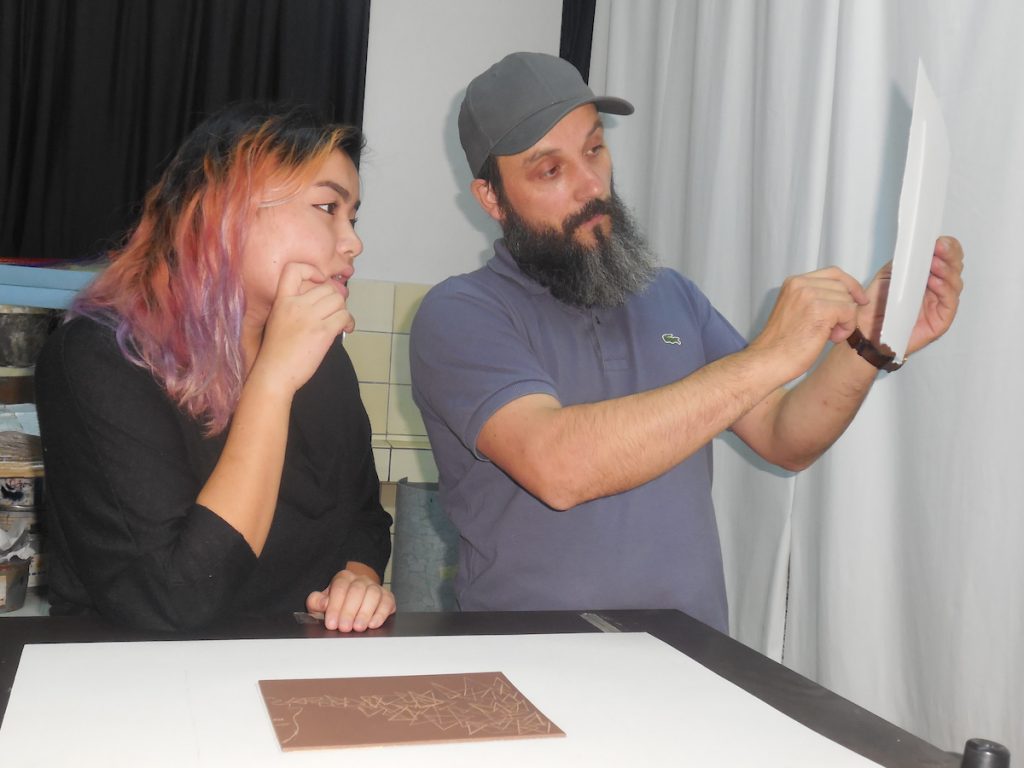
Czech Republic: Studio Arts—Explore photography, creative writing, or contemporary dance through an intensive arts workshop while examining debates around art, politics, and society.
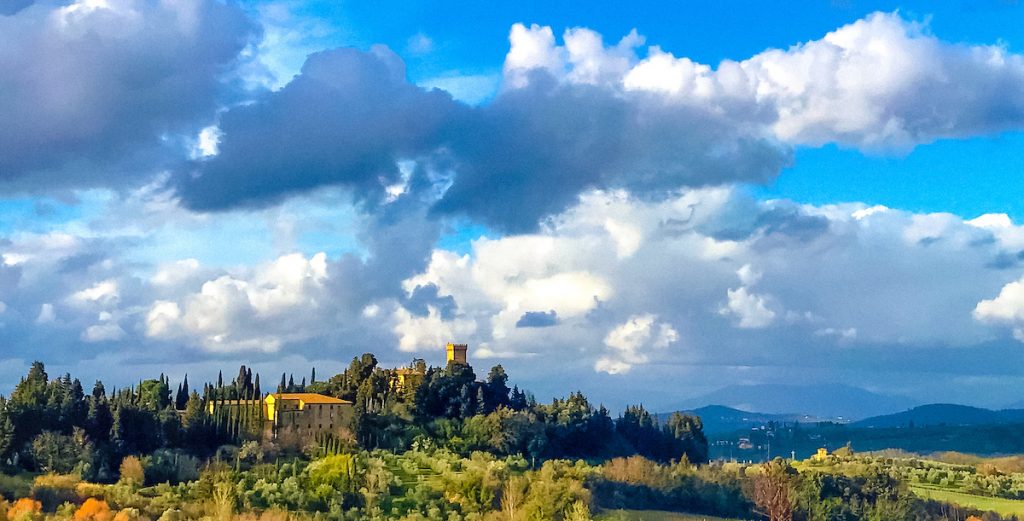
Italy: Food Security and Nutrition—Delve into sustainable agriculture on a Tuscan estate and explore how international experts are confronting challenges of food security, nutrition, and health.
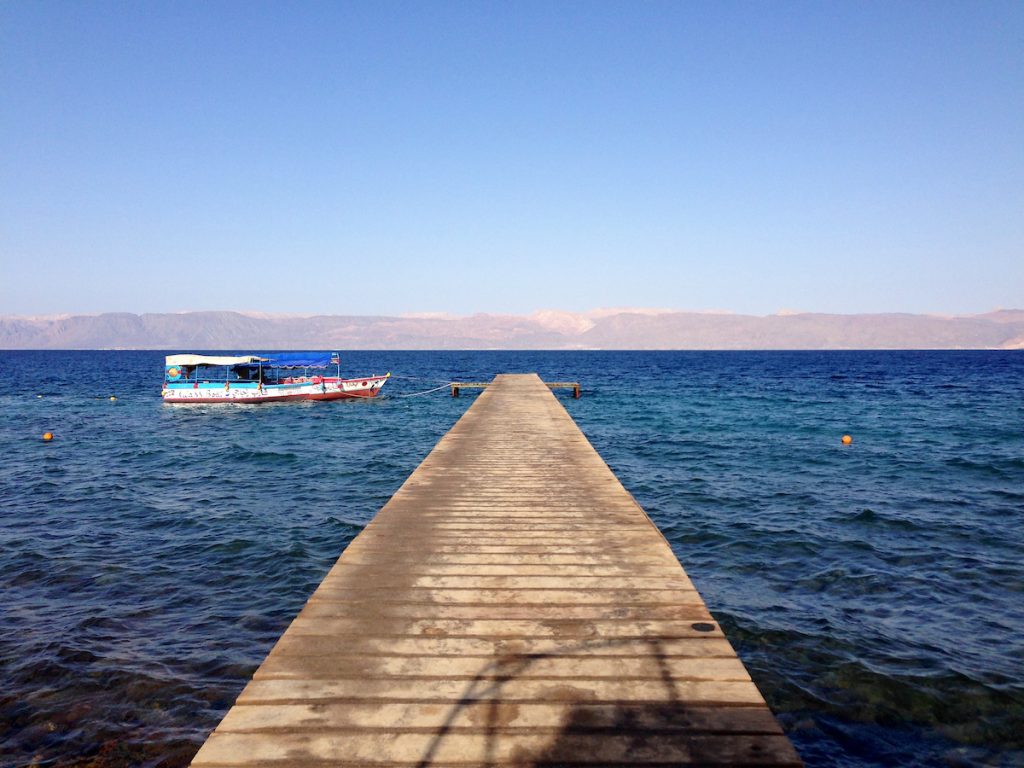
Jordan: Community Empowerment and Climate Change Internship—Gain professional experience with a UN or government agency or NGO working with youth and vulnerable groups on community empowerment and environmental sustainability.

Netherlands: Human Trafficking, Sex Trade, and Modern Slavery in Europe—Examine diverse areas of human trafficking and the sex trade, including the relationship between sex workers and broader societies.
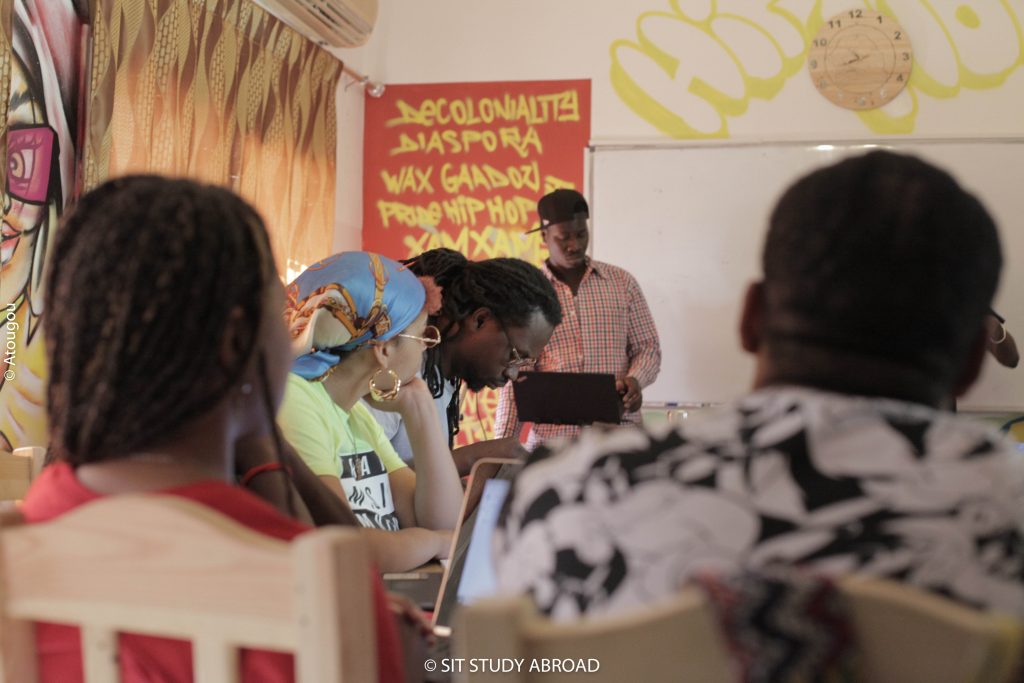
Senegal: Hip-Hop, Resilience, and Black Struggles—Examine how young Africans use hip-hop to question traditional representations of Africa, imagine the continent’s future, and raise consciousness of globalization and (in)equality.
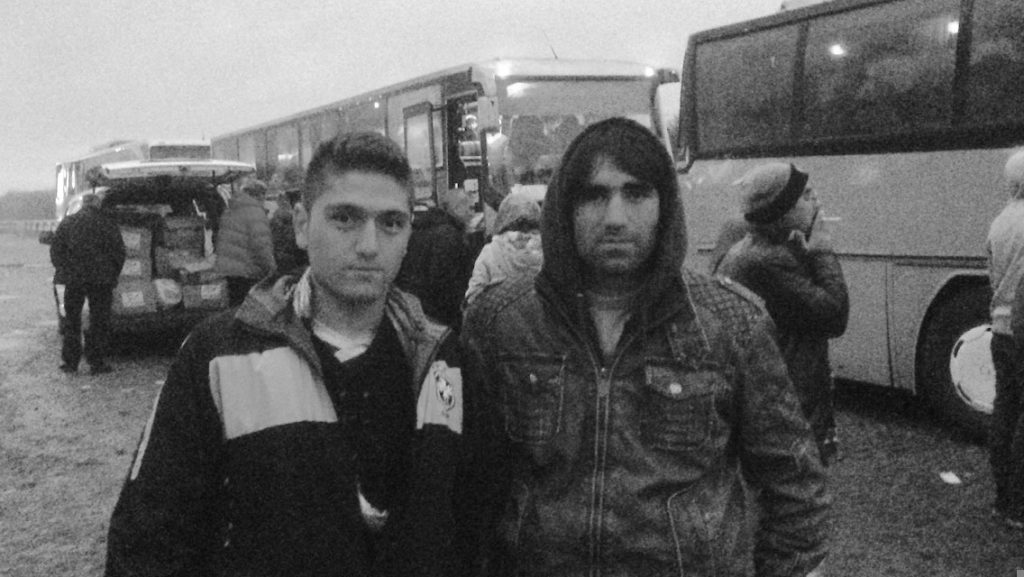
Serbia: Transitional Justice, Human Rights, and Memory Activism Internship—Look at justice, human rights, and memory in post-conflict societies and contribute to the work of an important organization with a meaningful internship.

Spain: Sustainable Urban Development and Social Justice—Explore the approaches Spanish cities are taking to pursue sustainable urban development within a social justice framework.
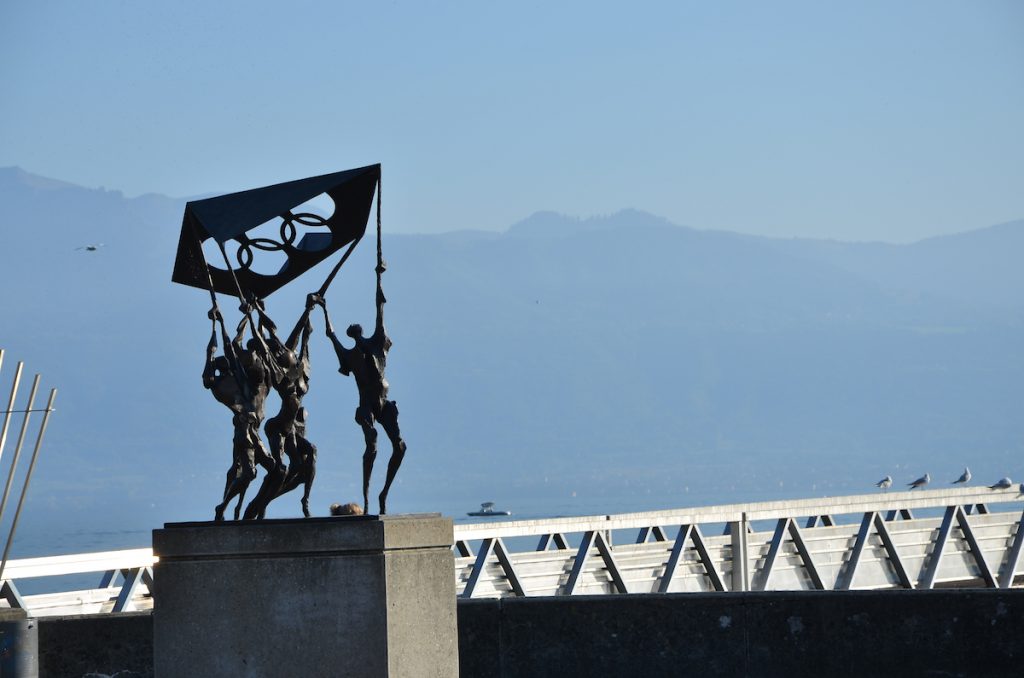
Switzerland: Global Health and Development Policy—Compare public health systems within the framework of international and sustainable development, humanitarian action, human rights, and social justice.
For more information about these and all SIT Study Abroad programs, visit www.studyabroad.sit.edu.

“We get to be on the front lines of building new bridges and creating a new way of life.”
Following is a transcript of the commencement speech by student speaker Danielle Purvis on August 21, 2021. Dani graduated with an MA in Climate Change and Global Sustainability.
Being asked to be a commencement speaker is a great honor. But I have the unique opportunity to make meaning out of one of the most bizarre and intense experiences of my life, and I’m guessing for those of you who are getting a few more letters behind your name today or celebrating your accomplishments from August 2020, this has been a bizarre and intense experience for you too.
I think the formula of a commencement speech includes some focus on the future, a call to action or an inspirational speech about stepping into the world. But since most people have been fixated on the future since March 2020, and many of us entering the job market are totally fixated on our near futures, I thought it would be nice to reflect on the past year.
It requires true commitment and grit to complete a master’s degree, and many of us chose global graduate programs that also involve full immersions into new communities and cultures with new languages and new challenges. The rest of us chose hybrid programs that required us to fit graduate school into our busy lives while we continued working our jobs and taking care of our families.
On top of the typical challenges of a graduate degree, the Class of 2021 completed their degrees entirely or almost entirely during a global pandemic. My cohort, for instance, experienced a lock down, then an evacuation, and then a lock down and an evacuation. We spent half of our field methods courses quarantined in our rooms, looking at the field on Google Earth. For the class of 2020, you finished what is arguably the most intense and rigorous portion of your master’s degrees while the world was shutting down and life as we know it completely stopped. You kept going.
Sometimes I think I shouldn’t have completed this degree during a global pandemic, but now I’m really appreciative of the unique perspectives the experience has given me. In my first master’s program in public health, I remember sitting in lecture halls in the US talking about case studies of other countries whose healthcare systems collapsed, how crises could sow distrust and mixed messaging, how natural disasters could destroy any progress a country made toward rebuilding infrastructure or providing life-saving services.
I’ve learned more from spending this year in other countries, seeing firsthand how a country must make hard decisions to close their borders to protect the health of their people or to keep their borders open to sustain their economies and keep their people fed, how a country’s limited resources can be stretched even more thinly during crises, and how easily systems fail, especially for countries that were already struggling.
Yet, I’ve learned more from spending this year in other countries, seeing firsthand how a country must make hard decisions to close their borders to protect the health of their people or to keep their borders open to sustain their economies and keep their people fed, how a country’s limited resources can be stretched even more thinly during crises, and how easily systems fail, especially for countries that were already struggling.
I have also experienced many beautiful personal and shared moments in this year. I got to see Iceland without tourists, a once-in-a-lifetime experience. In 2020, we had the largest global reduction in greenhouse gas emissions since World War II. In spite of our challenges and limitations, we’ve prevailed, just as much of the world does, with flexibility, creative solutions, community building, and hope.
I am completing this experience with a blend of gratitude for the resources available to me and a commitment to see these bountiful resources distributed as equitably as possible. I am completing this experience with a global lens of how we are inextricably connected to each other and to our natural environment. And I know, more than ever before, that the ways of this world are unsustainable and must change, and that we get to be on the front lines of building new bridges and creating a new way of life. If you are ever daunted by this challenge, I hope you will be motivated and inspired by your classmates, your mentors, and most importantly, yourself.
I am completing this experience with a global lens of how we are inextricably connected to each other and to our natural environment.
Our accomplishments are, in part, a credit to our incredible family members, friends, and support networks that stayed behind and held down our forts, like my fiancé tuning in from Georgia right now. Or those who stayed by our sides when we needed it the most, like my parents who have spent the majority of their vacation in Vermont making me food and entertaining themselves while I worked. Many of us put some part of our lives aside to complete our degrees, and our most gracious and loving support networks took care of those parts of our lives. So thank you from the bottom of our hearts.
Maybe some of you need a new goal to work toward and are invigorated by a future of possibilities. Maybe some of you prefer to reflect on the accomplishments of your past. But every graduate at this commencement – and everyone who’s been by our sides – should appreciate this moment right now and celebrate our incredible achievements. It’s a real honor to celebrate with you today, and I know we will accomplish great things in the future!
Thank you.
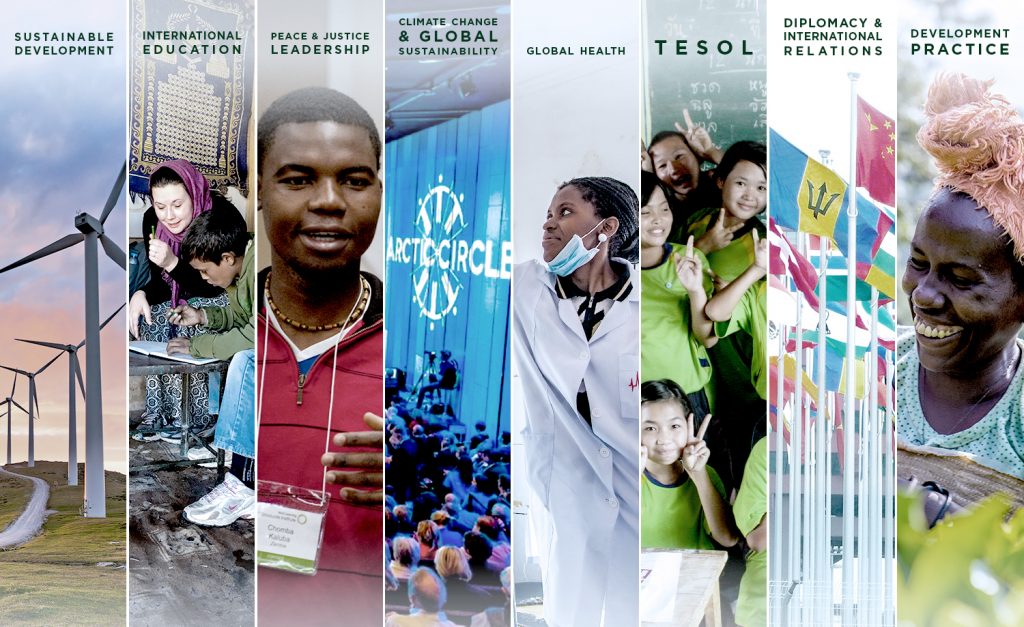
Meet our Global and Low-Residency program chairs to find the MA that’s right for you
This new SIT webinar series presents a great opportunity to learn about SIT’s Global and Low-Residency master’s degree programs.
Global Programs Webinar: Wednesday, January 8 – 9 a.m. (Eastern U.S.) with Dr. Joe Lanning (MA in Development Practice) and Dr. Richard Walz (MA in Climate Change & Global Sustainability)
Low-Residency Programs Webinar: Friday, January 17 – 12 p.m. (Eastern U.S.) with Dr. Bruce Dayton (MA in Peace and Justice Leadership) and Dr. Udi Butler (MA in Sustainable Development)
Global Programs Webinar: Tuesday, January 21 – 12 p.m. (Eastern U.S.) with Dr. Bruce Dayton (MA in Diplomacy & International Relations) and Dr. Sora Friedman (MA in International Education)
Low-Residency Programs Webinar: Wednesday, January 22 – 4 p.m. (Eastern U.S. ) with Dr. Leslie Turpin (MA in TESOL) and Dr. Sora Friedman (MA in International Education)
Global Programs Webinar: Monday, January 27 – 9 a.m. (Eastern U.S.) with Dr. Steve Wandiga & Dr. Azim Khan (MA in Global Health, Administration & Management) and Dr. Bayan Abdulhaq (MA in Humanitarian Assistance & Crisis Management)
Dr. Cheikh Thiam will lead SIT’s large and diverse portfolio of sub-Sahara programs
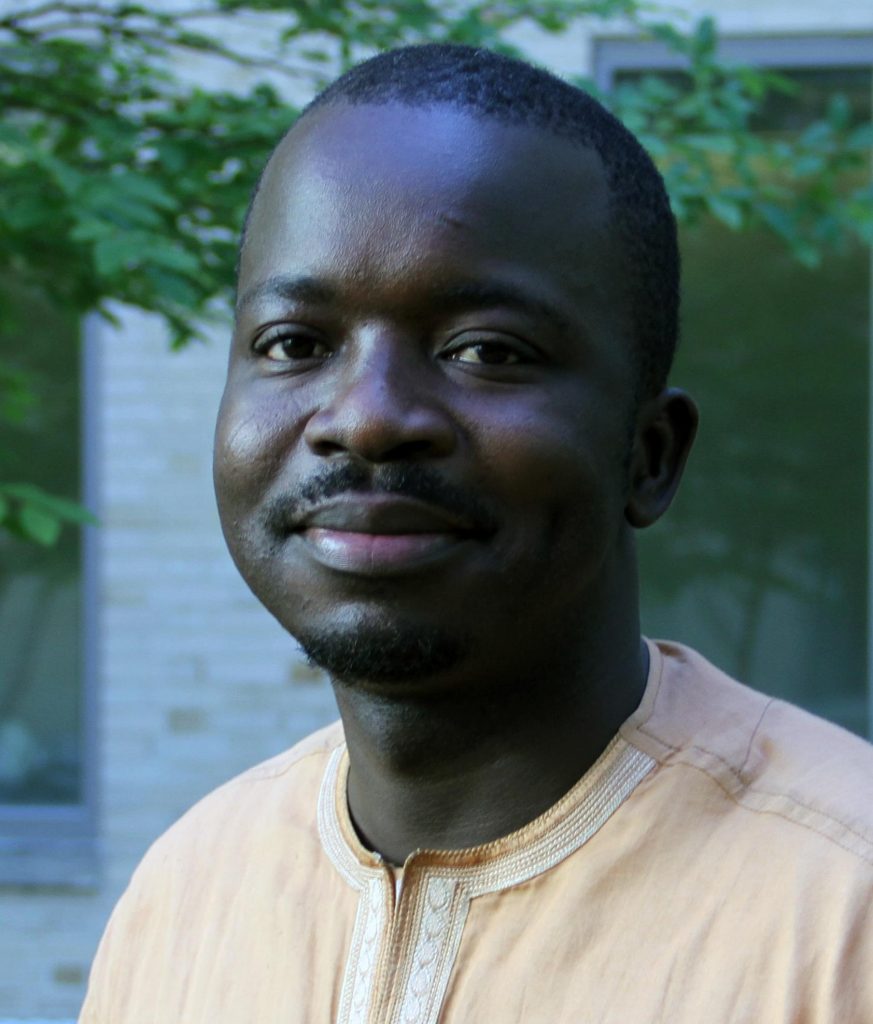
BRATTLEBORO, Vermont – Dr. Cheikh Thiam, academic director for SIT Study Abroad in Senegal, will become SIT academic dean for Africa South of the Sahara starting Jan. 1, 2020, School for International Training announced today.
Thiam co-leads SIT Study Abroad programs in Senegal focused on global security and religious pluralism, and designed a pioneering undergraduate program that explores how hip-hop artists and cultural influencers are redefining Africa’s future. “I am looking forward to taking on this expanded role at SIT, while drawing from my research examining collective imaginations of being and identity in Africa and the African diaspora in the colonial and postcolonial era,” said Thiam, who has directed study abroad programs in Senegal for the past 10 years.
As academic dean, Thiam will lead one of the broadest portfolios of programs in Africa of any U.S. institution. SIT’s multidisciplinary portfolio of accredited undergraduate programs covers nine sub-Saharan countries and encompasses subjects such as biodiversity and wildlife management, multiculturalism and human rights, health policy and social transformation, and even offers a journalism program. Several of SIT’s Global MA programs also have components based in Africa, including climate change in Tanzania, humanitarian assistance in Uganda, global health in Kenya, and international diplomacy in South Africa.
Cheikh’s outstanding scholarship and network of relationships across Africa and the United States, combined with his passion for student-centered study abroad classrooms, make him an outstanding addition to our leadership team.
— SIT President Dr. Sophia Howlett
Thiam brings to his new role a strong background in U.S. higher education. He has an MA and a PhD in comparative literature from Binghamton University, an MA in French from the University of Provence in Aix-en-Provence, as well as a BA from Université Cheikh Anta Diop in Dakar. He served as associate professor of African American studies, African studies, and French at The Ohio State University. He is the author of “Return to the Kingdom of Childhood: Re-envisioning the Legacy and Philosophical Relevance of Negritude,” published by Ohio State University Press in 2014.
Thiam also was the editor of Negritude Reloaded, a special issue of Journal on African Philosophy, an associate editor of Research in African Literatures, and has published widely in literature and philosophy journals such as Ethiopiques, West Africa Review, La Revue Africaine, La Revue du Graat, French Review, Research in African Literature, Dalhousie French Review, and Journal on African Philosophy. He recently completed a second book manuscript, “Epistemologies from the South: Negritude, Modernity, and the Idea of Africa.”
In announcing his appointment, SIT President Dr. Sophia Howlett said, “Cheikh’s outstanding scholarship and network of relationships across Africa and the United States, combined with his passion for student-centered study abroad classrooms, make him an exceptional addition to our leadership team.”
Thiam will join Howlett’s Council of Deans, a group that oversees SIT’s undergraduate programs, the SIT Graduate Institute, and SIT’s stable of more than 80 study abroad programs in Asia and the Pacific, Europe and the Middle East, Latin America, and the International Honors Program.
Thiam succeeds Dr. Daniel Lumonya, who has served as academic dean for the region since August 2015. Prior to that time, Lumonya was SIT academic director in Uganda. Lumonya completed his PhD in development sociology at Cornell University. “I have had the chance to work with Cheikh on our evolving programs in the region and I welcome the depth of experience he brings to this position,” Lumonya said.
Lumonya is leaving to pursue a career in research, teaching and community service from his country, Uganda. “I want to thank Dan for his dedicated work and stellar contributions to SIT, both as an academic director and dean,” Howlett said. “We will all miss him.”
Hafida Abdulla Ahmed joined the SIT family in 2019 as homestay coordinator for Stone Town. Formerly, she worked at the Embassy of Oman in Zanzibar. She enjoys travelling.
Three women scientists bring expertise in fire management, fishing, frogs
SIT Study Abroad is pleased to welcome five new academic directors on programs in our 2019-20 portfolio. These outstanding leaders in their fields include four women—three scientists and a historian who focuses on gender and sexuality—and a journalist and researcher with deep experience in North Africa.
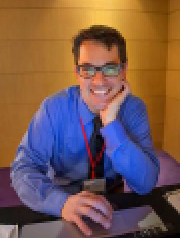
Daniel Lynx Bernard
Morocco: Field Studies in Journalism and New Media
Dan is a former newspaper reporter and online news editor who has worked in the Middle East and North Africa since 2001 as a consultant to projects strengthening media and civil society. He served as Egypt country director for the International Center for Journalists, overseeing training and exchange programs in the MENA region emphasizing the use of digital tools for public service journalism. Dan has an MP from the University of Minnesota Humphrey School of Public Affairs and a BS in communications and news-editorial journalism from the University of Illinois Urbana-Champaign. He has taught news and feature journalism at the University of North Carolina at Chapel Hill and the University of Minnesota, Twin Cities. Based in Morocco since 2017, Dan has researched the role of civil society in local governance and social issues.
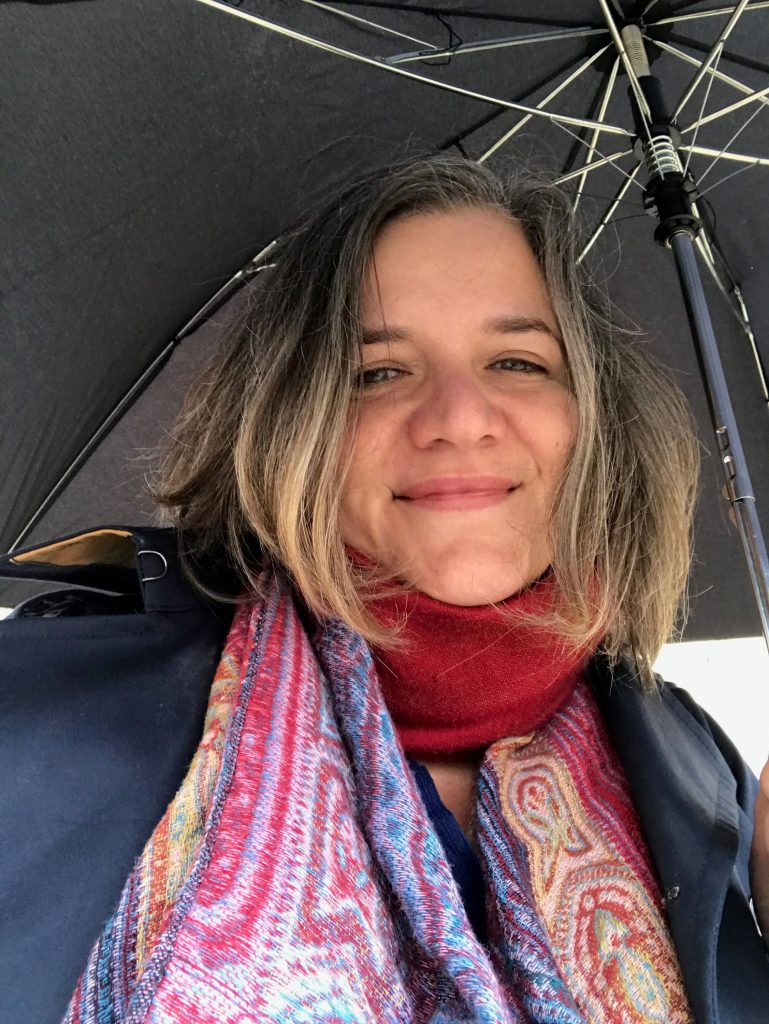
Dr. Jana Byars
Netherlands: International Perspectives on Sexuality and Gender
Jana holds a PhD in history from Penn State University. She is the author of Informal Marriage in Early Modern Venice (Routledge, 2018), the editor of Monsters and Borders in the Early Modern Imagination (Routledge, 2018), and the translator of Girolamo Benzoni’s 1565 travel narrative History of the New World (Penn State Press, 2017). She has also written reviews and articles about sexuality and gender in Europe. She comes to SIT after 20 years in American higher education, teaching at Iowa State, Whitman College, Marquette, Penn State, and Western Michigan. Her current research centers on sex work, rape, and questions of consent in a modern European and American context. Jana is a native Michigander happily living in Amsterdam.
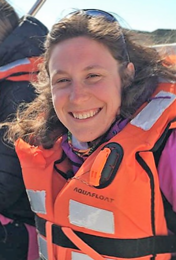
Dr. María Gowland
Argentina: People, Environment, and Climate Change in Patagonia and Antarctica
Born and raised in Ushuaia, Argentina, María holds a PhD in biological sciences from the University of Buenos Aires. She studied for her undergraduate degree in the Patagonian city of Puerto Madryn and returned to Ushuaia to carry out her PhD research on fishery and the reproductive biology of the Beagle Channel King Crab. María has been a member of the Marine Crustaceans Laboratory of the Austral Center for Scientific Research since 2010. María’s research interests include the perspectives, knowledge, and needs of the fishing sector and other stakeholders in a fundamental partnership for real success in natural resource management. Since 2012, María has been a math, ecology, conservation, and science professor at the National University of Tierra de Fuego and supervised students in field and laboratory internships.

Dr. Oliver Nyakunga
Tanzania: Wildlife Conservation and Political Ecology
Oliver holds a doctorate in fire and grazing effects on vegetation from the Ca’ Foscari University of Venezia in Italy; a master’s degree in environmental science from UNESCO-IHE Institute for Water Education, The Netherlands; and a master for education for sustainability from the London South Bank University United Kingdom. Her research interests center around wildlife ecology, wildlife management, water resources and invasive species, and she has published articles on various conservation issues. Oliver has more than 17 years of teaching experience in the discipline of wildlife management and conservation. For more than six years, she has worked within the wildlife sector in Tanzania. Prior to serving as academic director with SIT, she led field training trips to protected areas in Tanzania for students from College of African Wildlife Management, Mweka; Manchester Metropolitan University (UK); and Oshkosh Wisconsin University (USA).
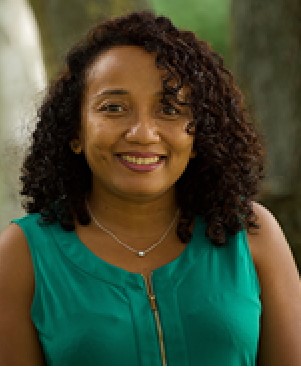
Dr. Andolalao Rakotoarison
Madagascar: Biodiversity and Natural Resource Management
Ando completed her master’s degree in biology in 2011 at the University of Antananarivo. She received her PhD in 2017 at the Technical University of Braunschweig, Germany, with a specialization in taxonomy revision of the microhylid cophyline frogs from Madagascar. In 2018, she became a lecturer at an affiliate institution of the University of Antananarivo at Soavinandriana, Itasy, Madagascar. The same year, she was appointed co-chair of the Amphibian Specialist Group Madagascar, a network of national and international research specialists representing the Malagasy government, universities, and NGOs. For the past eight years, Ando’s research has focused on the resolution of the enormous taxonomy gap within the Malagasy cophyline subfamily by maximizing taxonomy revision. This revision will contribute to the establishment of a conservation strategy for each nominal species.
she/her/hers
Dr. Nyakunga is a conservation professional and an active researcher with more than 19 years of experience. She in resilient in challenging environments. She has worked in various capacities and in different institutions/organizations as acting deputy rector academics, research and consultancy at the College of African Wildlife Management, Mweka; a member of the national task force for combating invasive species, Tanzania; project director for the Bee-Monitoring Project in Tanzania funded by JRS Biodiversity Foundation; zonal in charge and park guide at Serengeti N. Park under Tanzania National Park; chairperson of the External Examiner Committee for the Pasiansi Wildlife Training Institute-Mwanza; and board member for the Science and Allied Technologies programmes-NACTE.
Dr. Nyakunga has published articles in high-impact peer-reviewed journals and has led several conservation-related fields practical training excursions/trips within East Africa. The latter covered several protected areas in Tanzania, Kenya, and Uganda for students from the College of African Wildlife Management, Mweka; students from Manchester Metropolitan University (UK), and universities in the United States. Her specialties include ecological inventories, invasive plant species and rangeland management, wildlife ecology botany, biostatistics infrastructure management, and natural resources.
Courses Taught
Wildlife Conservation and Political Ecology
Environmental Research Methods and Ethics
Independent Study Project
Select Publications
Mwakaluka, E., Masao, C., Nyakunga, O. C., et al., (2019). National Invasive Species Strategy and Action Plan (NISSAP) (2019-2029). Published by the Vice President’s Office, Division of Environment, United Republic of Tanzania, DODOMA
Nyakunga, O.C., Vecchio, S.D., & Buffa, G. (2018). Effects of management regimes on structure, composition and diversity of seasonally inundated herbaceous communities in the Mkomazi National Park, Tanzania. Afr J Ecol.,1–8. https://doi.org/10.1111/aje.12524
Pierce, S., Negreiros, D., Cerabolini, B.E. L., Kattge, J., Dıaz, S., Nyakunga, O. C., et al. (2017). A global method for calculating plant CSR ecological strategies applied across biomes world-wide. Functional Ecology, 31(2), 1-14. https://doi.org/10.1111/1365-2435.12722
Nyakunga, O. C. (2016). Fire and grazing effects on herbaceous structure, composition and diversity, and plant functional responses to management regimes in Mkomazi, Tanzania. http://dspace.unive.it/bitstream/handle/10579/8347/956032-1175880.pdf;sequence=2 PhD Thesis
Msyani, E.K., Lazaro, M. J., Nyakunga, O. C., & Chambegga, A. O. (2008.) Seasonal Inventory and Status of Flying Insects, in the Kihansi Gorge, Tanzania. Afr J Ecol., 47(3), pp 267-275. https://doi.org/10.1111/j.1365-2028.2007.00907.x
Garner, T.W. J., Nishumra, D., Antwi, J., & Nyakunga, O. (2008). Human Disturbance Influences Behaviour and Local Density of Juvenile Frogs. Ethology, Volume 114(10), 1006-1013. doi: 10.1111/j.1439-0310.2008.01540.x
Research Interests
Rangeland carrying capacity
Vegetation inventories
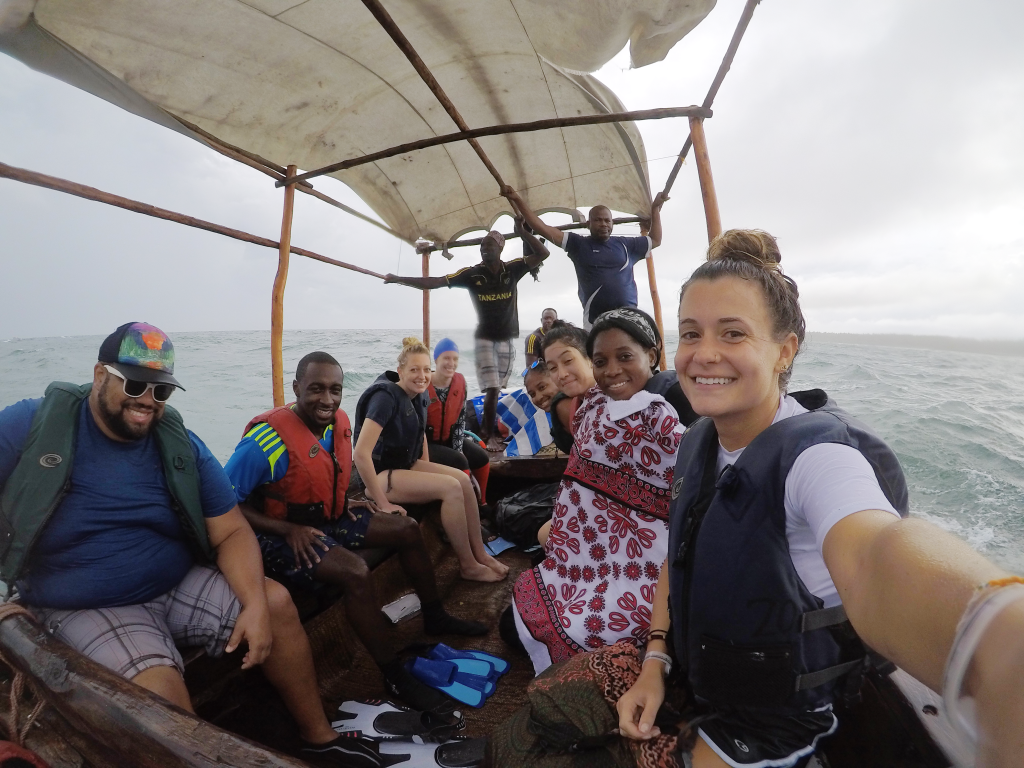
SIT students Micalea Leaska and Cass Madden are studying Climate Change and Global Sustainability in order to work in fields that aren’t directly related to climate change.
They’re part of SIT’s first global MA program, which launched in fall 2018 and takes a broad approach to the subject of climate change. Taught entirely abroad, students take a range of issues-based courses and conduct hands-on fieldwork in Iceland and Tanzania, countries that provide a close look at the effects of and community responses to climate change in arctic and tropical regions.
The mix of science and issues coursework is aimed at preparing students for careers in climate change policy and advocacy. During their third semester, students do a practicum at an organization anywhere in the world that fits their career goals.
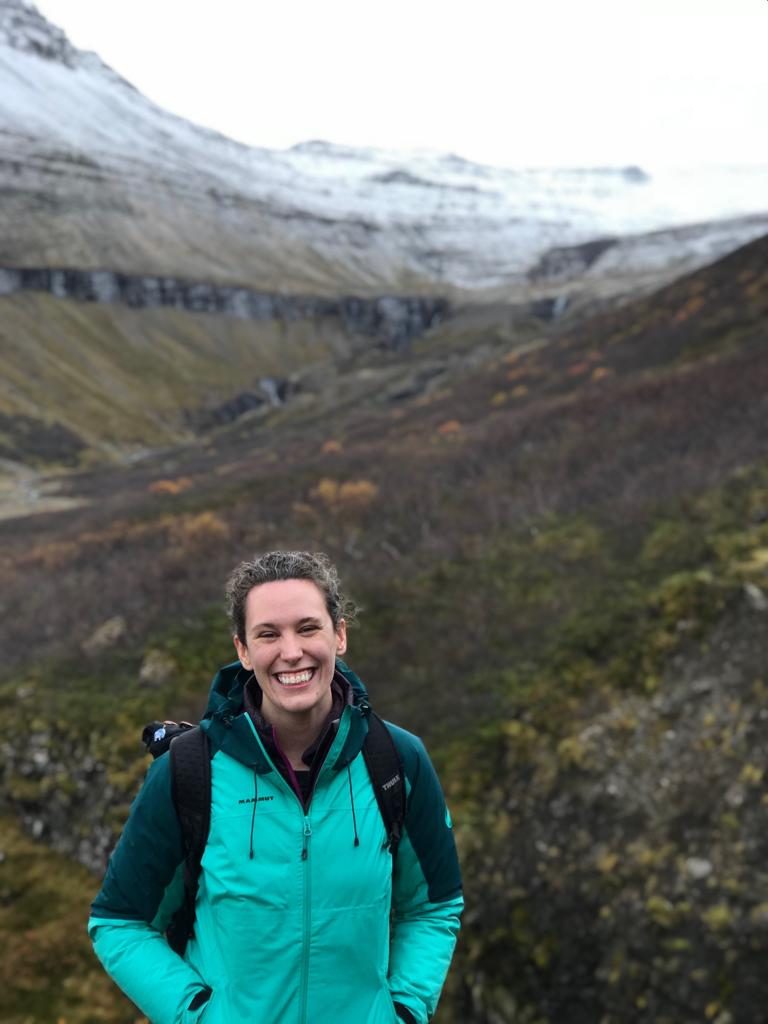
For Madden, climate change provides the context for understanding her driving passion: the issues of indigenous people worldwide. “Indigenous people tend to be disadvantaged in every way. Indigenous rights at their core are deeply tied to environmental rights. The environment is a tremendous part of how indigenous people understand the world, and land rights are central. That’s an issue that’s changing as the climate changes,” she says.
Leaska wants to work in public health. She’s more interested in challenges like water sanitation than in studying medicine, and says SIT’s Climate Change degree offered an intriguing way to approach that, in part because it’s not only about the hard science, but also about policy. “One thing that appealed to me was the openness of the degree,” she says. “It’s able to capture a lot of different interests.”
To her point, Leaska says the students in her cohort are planning to go into all range of fields, including government policy and urban planning. ”Not a single one of us is overlapping with other students’ career plans.”
Both Leaska and Madden said they chose SIT for their graduate studies because of something else they share: undergraduate experience with SIT Study Abroad. Madden, who studied with SIT Peru: Indigenous Peoples and Globalization in spring 2015, plans to return to Peru for the practicum phase of her master’s program.
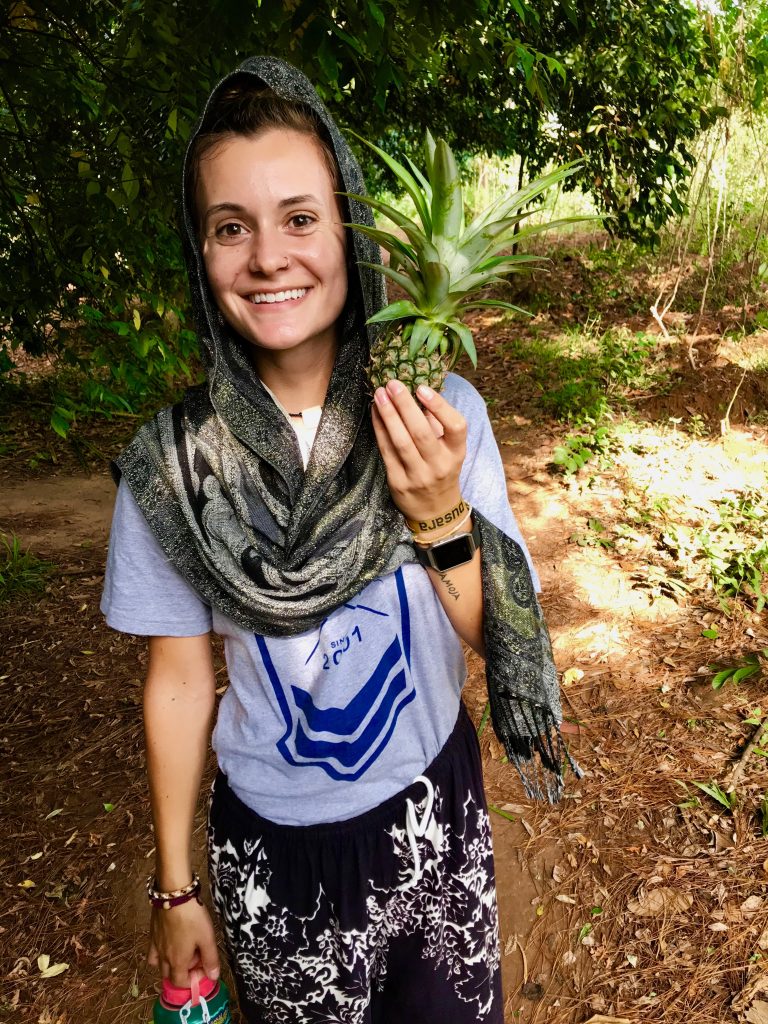
In fall 2016, Leaska was part of the SIT program Tanzania-Zanzibar: Coastal Ecology and Natural Resource Management,whose director, Dr. Richard Walz, also chairs the climate change master’s program. That had a lot to do with her choice of SIT Graduate Institute. “Richard was an awesome advocate for students. He really tries to make sure your research is getting noticed.”
Leaska’s research involved waste management of disposable diapers and how that connects to environmental awareness among women in Zanzibar. For her MA practicum, she’ll work in Ecuador with an organization called Waterstep, researching water sanitation and public health. Waterstep helps communities that have suffered from waterborne diseases develop water purification systems. “Each system runs independently and it’s completely sustainable. Community members pay something like three dollars per month, or whatever amount works in that community.”
Leaska will look at the socioeconomic variables as well as the health impacts of communities’ developing safe water systems.
In Cusco, Peru, Madden will work with the organization ANDES, which promotes the Andean indigenous idea of “sumaq kausay,” a “holistic vision” focused on the connections between humans and the Earth. The organization is near the International Center for the Potato seedbank which, she says, worked with ANDES to help a coalition of indigenous communities bring the potato – which originated in the region – back into prominence in local agriculture via what she describes as an agricultural “park.” Madden will help create a spatial model of that park to help ANDES understand the variables which have made it a success. That model may then, she explains, help partner organizations identify sites for similar projects elsewhere, including Mexico (for corn) and Ethiopia (for coffee).
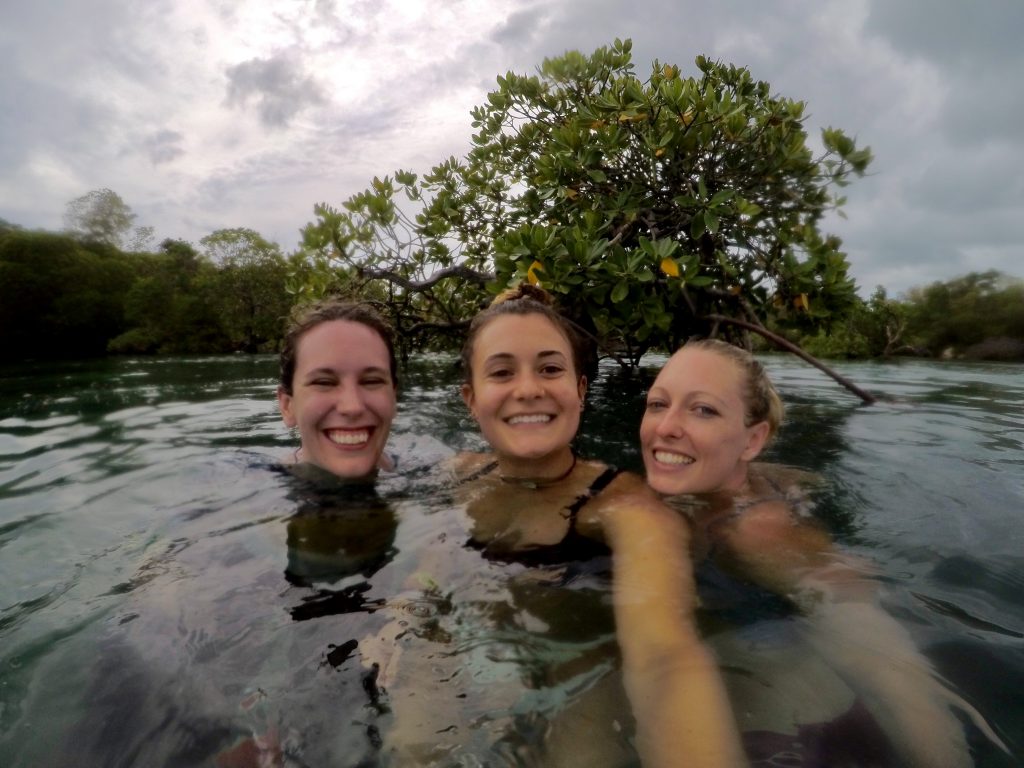
Leaska and Madden say what they’ve learned and how they’ve learned it, in terms of climate change science, policy, and research are a great fit for the careers they want.
“I feel like each of us is leaving with an incredible education,” says Leaska. The work load of grad school may seem like a lot, “but everyone is ending up with traits that are going to be extremely desirable for employers. And the SIT network [of alumni and faculty] is incredible.”
Madden echoes those sentiments. “I really liked the idea of being able to spend time abroad as a graduate student; it’s what SIT does well. This is a new model for a master’s degree, but I had faith that SIT’s many years of experience running programs abroad meant the program would be well-run and thoughtful.”
“In most grad programs,” Madden continues, “people tend to write a thesis based on going to the library and reading, or maybe doing some interviews. It’s definitely atypical in a master’s program to spend three or four months in the field doing research.”
Though she says being in the field also brings challenges, Madden sees the program as “an incredible opportunity” for students interested in sustainable development and environmental issues. “This is a great program for figuring out how an interest you have can interface with the real world. It’s driven by experience, but it’s also academically rigorous and guided by an applied approach. That’s helpful for anyone who’s looking to work in the world.”
Jill Welter received her PhD in aquatic ecology and biogeochemistry from Arizona State University. She completed a postdoctoral fellowship at the University of California, Berkeley, and is currently a faculty member at St. Catherine University. Her research aims to understand how human activities that cause environmental change, including climate warming and nutrient pollution, influence freshwater food webs and nutrient cycling. This work includes the increasingly important role that nitrogen-fixing cyanobacteria may play in aquatic ecosystems as a result of rising temperatures and the potential consequences for the cycling of carbon and nitrogen between land, air, and water. She has recently worked in Greenland; Svalbard, Norway; Kamchatka, Russia; and Iceland, where she collaborates with an international team of scientists and works to promote women in STEM and arctic ecology.
Courses Taught
Human-Climate Interface I: Energy and Climate Policy in Iceland
Peter Weiss has been director of the University Centre of the Westfjords and its graduate and other programs since its founding in 2005. Previously, he taught linguistics and literature at the University of Iceland’s Department of Nordic Languages and German. He also served as head of its Language Centre and director of Goethe Zentrum Reykjavík. Dr. Weiss earned a PhD in linguistics and Scandinavian languages, with a dissertation on the history of ideas and the development of linguistic thinking in Sweden in the 17th and 18th centuries, at the University of Greifswald in Germany. In additon, Dr. Weiss holds a master’s degree from the University of Kiel in Germany and a bachelor’s degree from the University of Iceland.
Javier is associate professor of atmospheric sciences at the University of Alaska, Fairbanks and an expert in the physics of the atmospheric boundary layer (ABL). His research focuses on the ABL related to meteorology and various processes. His research group conducts experiments in Arctic and sub-Arctic regions, linking surface processes and boundary layers in complex ecosystems to large-scale satellite remote sensing and climate models. He has a PhD in physics (2000) from the Laboratoire de Météorologie Dynamique, Ecole Polytechnique, Université Paris VI, France, and an engineering diploma (1991) from the School of Engineering, National Technological University, Buenos Aires, Argentina.
As a political ecologist, educator and researcher, Nicolas Stahelin has been involved in experiential learning, international and cross-cultural exchange, urban community partnerships, and higher education for 25 years. He has a BA in environmental studies from Oberlin College, an MA in international educational development from Columbia University, and a doctorate in international and comparative education focusing on sustainability policy, also from Columbia. Nicolas is a faculty member of the SIT Graduate Institute MA program in Climate Change and Global Sustainability and a recent research associate at the Sustainability and Education Policy Network of the University of Saskatchewan. He has conducted ethnographic research on urban school-community partnerships for social justice education programs with Latin American immigrant communities in Queens, NY. Nicolas has published in several high-impact peer-reviewed scientific journals. His published doctoral research includes a critical examination of urban environmental governance and the fight for environmental justice in public school communities of Rio de Janeiro, Brazil. In current projects, Nicolas is investigating the ways that urban political ecology in theory, and environmental justice movements in practice, should inform critical urban studies program design in study abroad. Nicolas is an alum (fall 2000) and former program assistant (2001, 2003–2004) of a SIT Study Abroad program in Brazil. Originally Swiss-Brazilian, Nicolas lived for over 20 years in Brazil and Venezuela and is fluent in English, Spanish, Portuguese, and French.
See Dr. Stahalin’s list of publications
Chacha holds a PhD in parasitology and an MS in applied zoology from the University of Dar es Salaam, where he is an associate professor and head of the Department of Aquatic Sciences and Fisheries Technology. In the past, Chacha served as a Wellcome Trust Postdoctoral Fellow. His field research addresses parasites, diseases, and aquatic environments in multiple regions of Tanzania. His many publications include books, articles in refereed journals, chapters, conference proceedings, and consultancy reports.
Moza has more than 30 years of teaching experience. She has worked in the Zanzibar English Language Improvement Project as an English Language Training teacher trainer and at a teacher center in Zanzibar as a primary-level teacher trainer. She is a women’s coordinator in the Zanzibar Teachers Union and serves as a chairperson at the NGO Community Development and Environmental Conservation of Zanzibar. In 2009, Moza established STAR, a nursery school designed to support the community in her home island, Pemba, as it implements Zanzibar’s newly adopted government education policy. Moza joined SIT as a homestay coordinator for the Tanzania-Zanzibar program in 2007.
Beatrice is the language coordinator and head Kiswahili language teacher with SIT in Arusha. She has been developing the program’s Kiswahili materials and classes since 2004. Beatrice directs a capable team of four teachers and was instrumental in an East Africa–wide process of standardizing SIT’s Kiswahili language courses.
Mama Juni has been with SIT in Tanzania since 2009. Her organizational work provides a strong foundation for the program. Her responsibilities are numerous and include managing accounts, supervising local staff, procurement, and acting as a confidante to the students. Mama Juni ensures the program runs in an efficient and professional manner.
Oscar Paschal holds a bachelor’s degree in governance and development from MS Training Center for Development Cooperation and a diploma in African Wildlife Management from College of African Wildlife Management. Previously, he worked with the Ministry of Natural Resources and Tourism as a game warden, conserving wildlife resources and environments, enforcing laws, supervising tourists. He worked with a fishing community adjacent to Lake Rukwa Game Reserves to promote sustainable wetland management. Oscar worked with SIT Tanzania as a volunteer from 2007 to 2009, before joining as a full-time employee in 2013. His primary responsibilities are the oversight of all field academics, planning and logistics, and assistance with ISP modules. He supports students’ well-being and health and coordinates and cooperates with the language and homestay coordinators and partners institutions including the College of African Wildlife Management, Mweka, Sokoine University of Agriculture, Ngorongoro Conservation Area Authority, and Tanzania National Parks.
